- What Happens During Sleep?
- 8 Side Effects of Sleep Deprivation
- What Does It Mean to Sleep Well?
- Top 7 Things That Can Prevent You From Sleeping Well
- 7 Tips to Fall Asleep Quicker
- 5 Tips to Sleep Better and Longer
- Sleep Myths and Misconceptions
- Social Implications of a Strict Sleep Routine
- Frequently Asked Questions
- Final Words – The Importance of Sleep
If you don’t sleep well, nothing else matters and your performance will suffer. In other words, you can’t compensate for crappy sleep with a healthy diet or exercise. I know that sounds extreme, but it’s the truth.
That’s why it’s imperative to protect your sleep at all costs.
This article will help you better understand the far-reaching implications of a good night’s sleep (or lack thereof), and will address some of the most frequently asked questions about sleep.
My goal with this guide to sleeping better and falling asleep quicker is to change your perception of sleep from a necessary evil to an empowering part of your life that can unlock performance potential you didn’t even know existed.
Here are some of the key takeaways from this article:
- Sleep is a skill you have to learn.
- Consistent sleep/wake patterns yield the best sleep quality.
- Restorative phases of sleep are essential for hormone production and recovery.
- 40% of your sleep should be in restorative stages.
- You can’t make up for significant missed sleep on the weekend.
- Alcohol doesn’t make you sleep better.
- If you don’t sleep well, your performance and health will suffer.
- A healthy diet and exercise can’t make up for crappy sleep.
- Don’t cut your sleep short for anything (unless you absolutely cannot avoid it).
What Happens During Sleep?
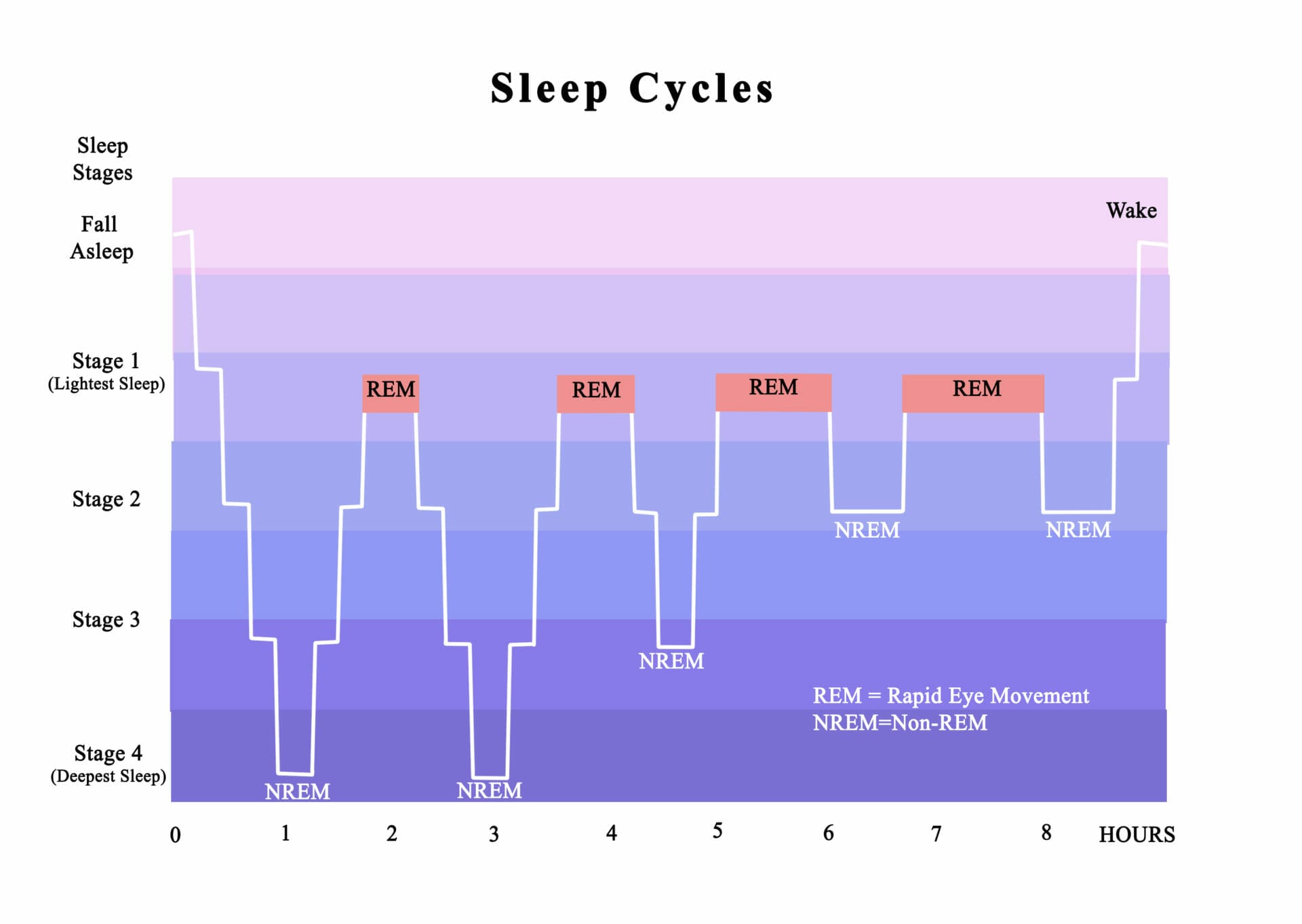
There’s a lot going on inside your body while you’re asleep. This includes things like memory consolidation, synaptic pruning, and the release of hormones your body needs to recover from the strain of the previous day.
Most of you already know that sleep is essential for your well-being. If you don’t sleep at all, you’ll get sick and eventually die.
That’s because the body uses this period of inactivity to recover and repair itself. Many of the chemical processes associated with sleep happen during the restorative phases of sleep, which include slow-wave sleep — also known as deep sleep — and REM sleep.
REM stands for rapid eye movement and describes a stage of sleep during which we rapidly move our eyes underneath our eyelids. REM is also the stage during which we have our most vivid dreams.
It’s also worth noting that specific metabolic processes, including the release of various hormones, are activated during slow-wave sleep. For example, your body produces and releases most of its growth hormones and testosterone during deep sleep.
If you don’t get sufficient restorative sleep, your body won’t be able to rebuild damaged muscle tissue from a workout, you might suffer the consequences of low testosterone levels, and your ability to lose weight will likely be impaired. And these are just a handful of the negative health consequences associated with poor sleep.
While slow-wave sleep is incredibly important for physical recovery, REM sleep is when your body stimulates various areas of the brain that are associated with learning, making, and retaining memories.
To learn more about the different stages of sleep, including information about how your brain waves change in those different cycles, check out this article.
8 Side Effects of Sleep Deprivation
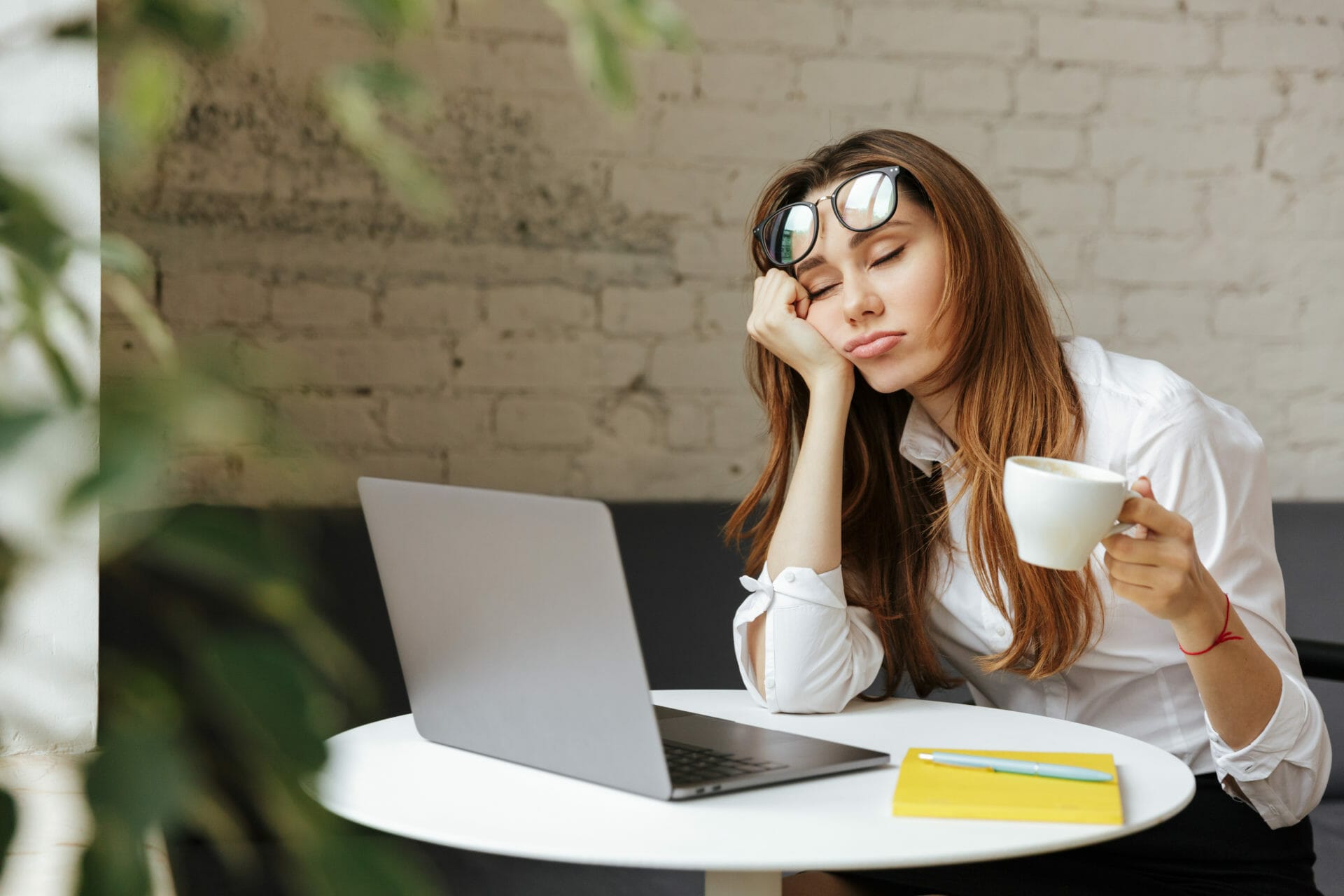
Life-threatening sleep deprivation aside, even cutting your sleep a little short can have far-reaching and long-lasting consequences. So here are some of the effects of sleep deprivation that you might not be familiar with:
- Reduced physical performance
- Reduced mental performance
- Impaired ability to manage weight
- Low levels of certain hormones
- Irritability and mood changes
- Weakened immune system
- High blood pressure
- Increased risk of metabolic diseases
- Low sex drive
The funny thing is that many chronically sleep-deprived people consider their daily symptoms normal. That’s one of the reasons why some people are convinced they can get by with four to six hours of sleep without problems.
In reality, those people don’t know what it means and how it feels to be fully rested and recovered. In other words, they don’t exploit their full mental and physical potential.
Up until a few years ago, I didn’t pay much attention to my sleep either. I certainly knew that sleep was important, but I had no clue just how absolutely essential it was.
Moreover, I had no idea how it felt to wake up entirely rested and full of energy. I didn’t experience that until after I changed my sleeping habits, and it was a revelation.
Anecdotal evidence aside, here are some scientifically-proven consequences of poor sleep.
1. Reduced Physical Performance
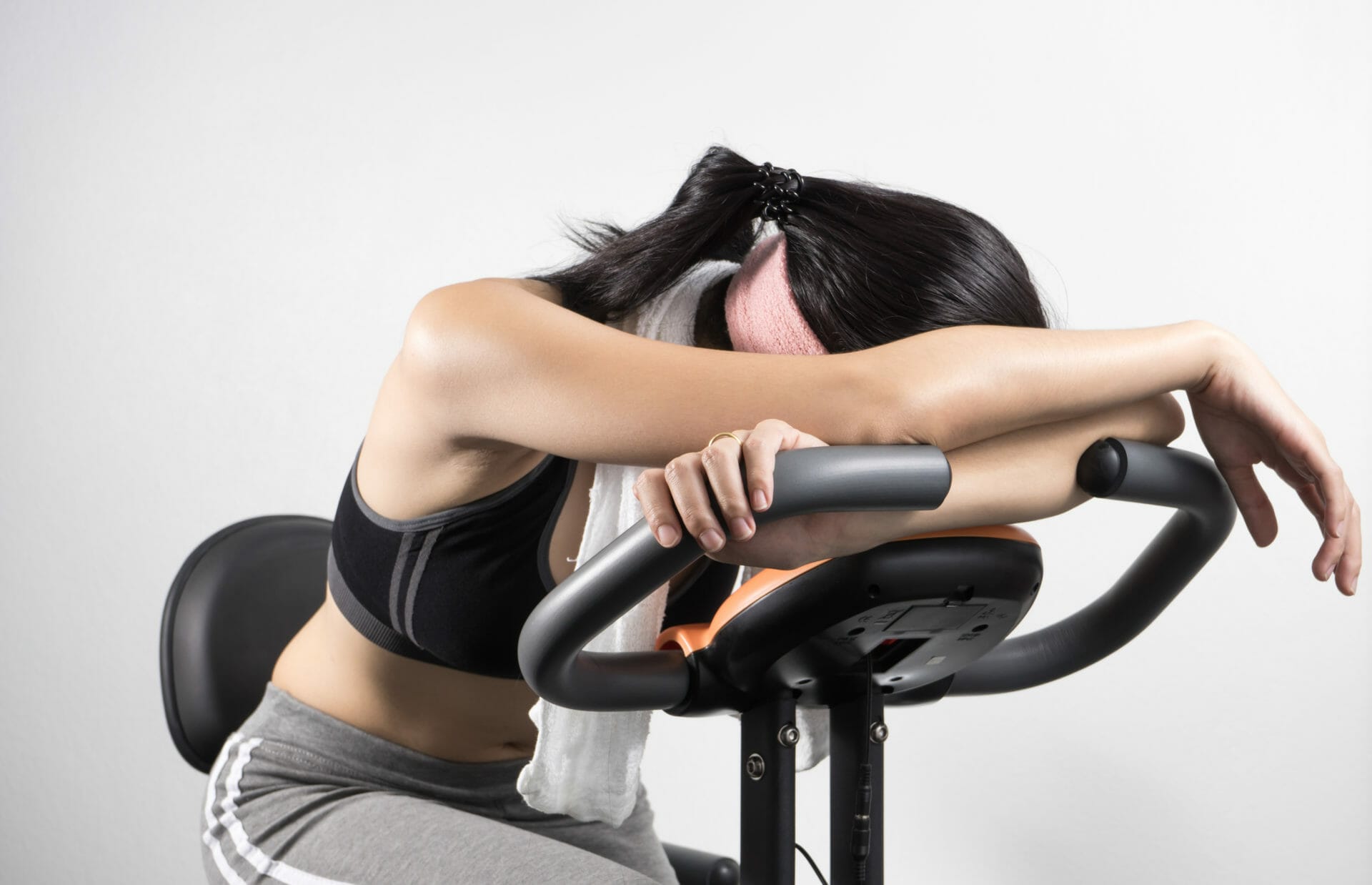
If your body isn’t rested, you’re less likely to exercise. But even when you do, you’ll experience a negative impact on your performance.
Paired with reduced cognitive performance, you’re more likely to make mistakes and get injured.
I work in an environment where physical performance isn’t a crucial factor. However, I never want my fitness (or lack thereof) to be a limiting factor in anything I do — be it while playing with the kids or carrying grocery bags to the car.
If your line of work involves physical activity, such as working on a construction site, reduced physical performance due to lack of sleep could lead to severe injury or even death.
2. Cognitive Performance
Even if you don’t deem fitness and physical performance important factors in your life, cognitive performance is crucial for everybody.
If you don’t sleep well and get sufficient restorative sleep, your mental performance is impaired, and you’ll suffer from memory issues and have trouble concentrating.
3. Weight Gain
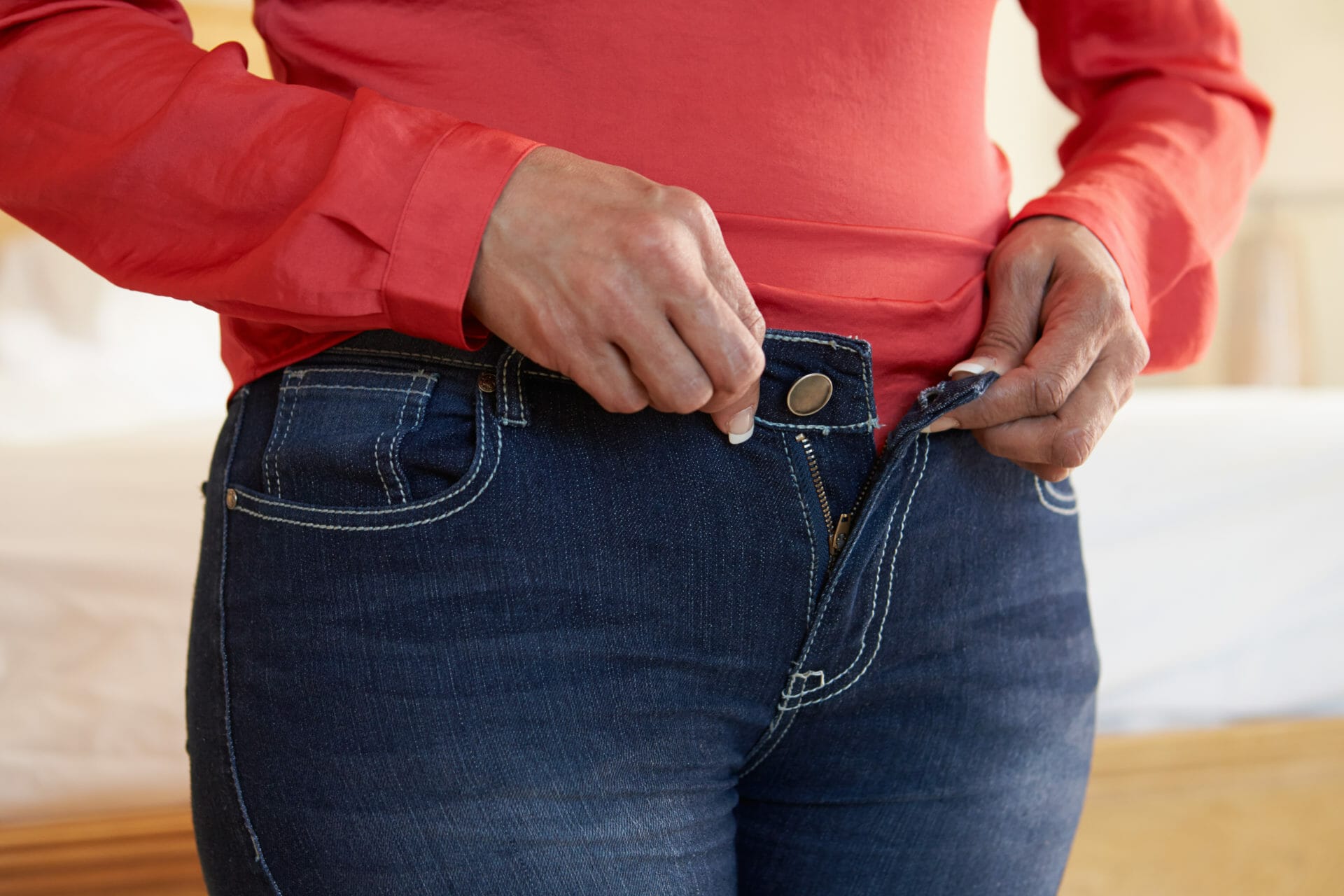
Sleep deprivation causes an imbalance in two hormones that regulate appetite and signal fullness — leptin and ghrelin.
That means if you don’t sleep enough, you’re more likely to overeat. As a result, you’re more likely to gain weight and less likely to lose it.
Additionally, when you’re tired, your body releases more insulin (after eating carbs), which increases the chances of your cells becoming insulin resistant. That can lead to developing Type 2 diabetes.
4. Lower Levels of Growth and Sexual Hormones
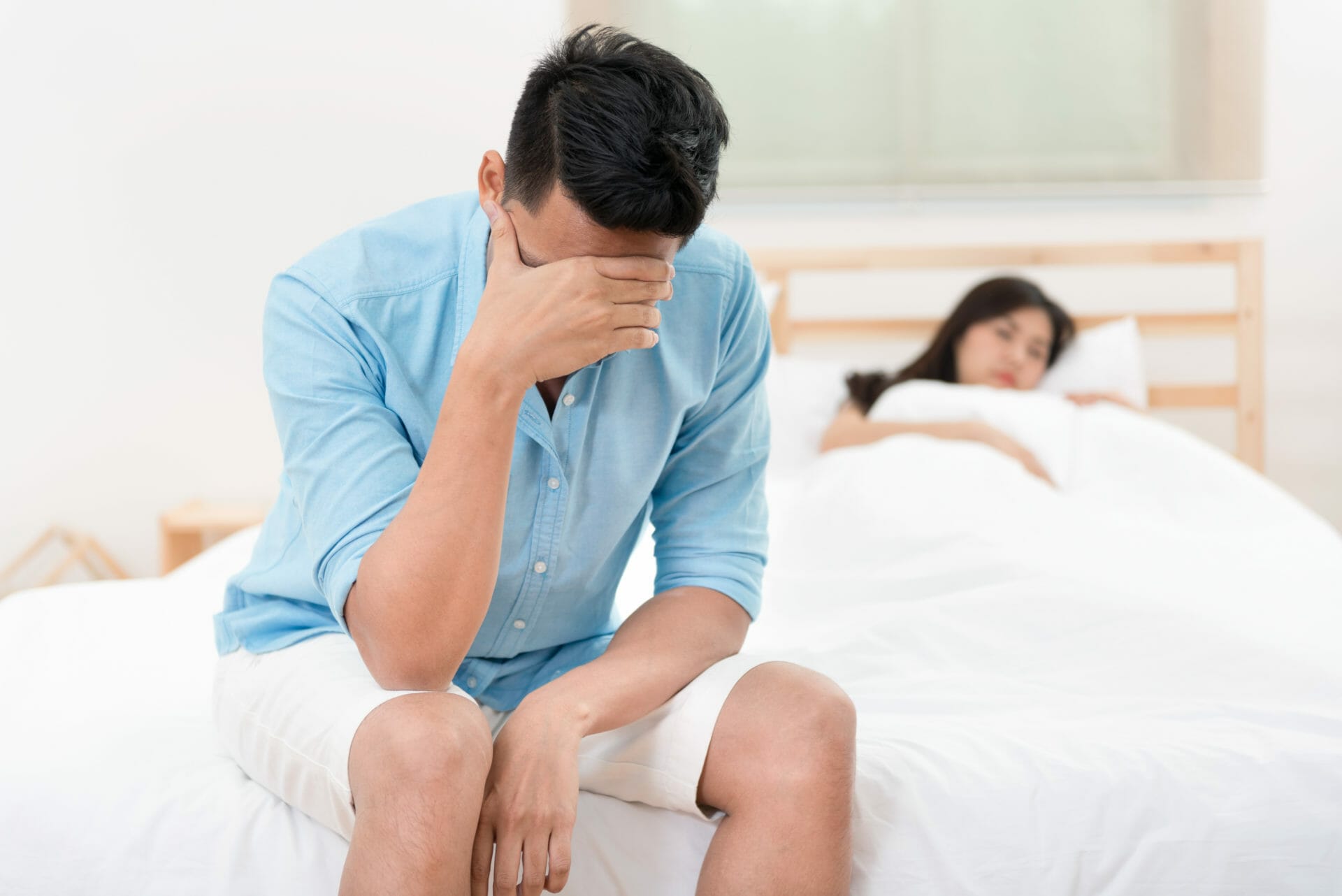
Besides exercise, sleep is a major factor in the production of certain hormones, including human growth hormone (HGH) and testosterone.
Without proper sleep, your body won’t produce and release enough of these critical hormones.
As a result, your recovery is significantly impaired, rendering workouts almost useless, and you might suffer the consequences of low testosterone levels, including:
- Low sex drive
- Reduced sperm production
- Depressed mood
- Low muscle mass and strength
- Low bone density
- Reduced red blood cell production
- Increased body fat
- Increased fatigue
- Negative impact on cholesterol metabolism
To produce testosterone, your body needs approximately three hours of uninterrupted sleep. That coincides with the timing of your first REM cycle.
5. Mood Changes

Mood changes, such as irritability, are another common side-effect of sleep deprivation. In some cases, a hormonal imbalance (such as low testosterone levels) can be the culprit behind severe emotional changes.
In either case, getting sufficient quality sleep can quickly fix those problems.
6. Weakened Immune System
Cytokines are special proteins that help your body fight infections caused by viruses and bacteria. Among other cells, it’s the immune cells that produce cytokines while you sleep.
If you don’t get enough sleep, your body won’t be able to produce those infection-fighting proteins. The National Sleep Foundation has written a good article about how sleep affects your immunity, which you can read here.
For six tips and tricks on how to strengthen your immune system, check out this article.
7. High Blood Pressure

Besides testosterone and growth hormone, your body also produces certain stress hormones (such as cortisol) while you sleep.
While the exact mechanism is not well understood, scientists believe that if you don’t sleep enough, your body doesn’t produce enough stress hormones. This, in turn, increases your blood pressure.
8. Increased Disease Risk
If you combine high blood pressure and high insulin levels after eating, you also increase your risk of developing metabolic diseases, such as Alzheimer’s disease, diabetes or heart disease.
That shouldn’t really come as a surprise.
Coincidentally, while sleep deprivation can contribute to a depressed mood, there are studies that suggest it might also be an effective treatment for clinical depression. I guess that’s probably one of the few positive side effects of not sleeping.
What Does It Mean to Sleep Well?
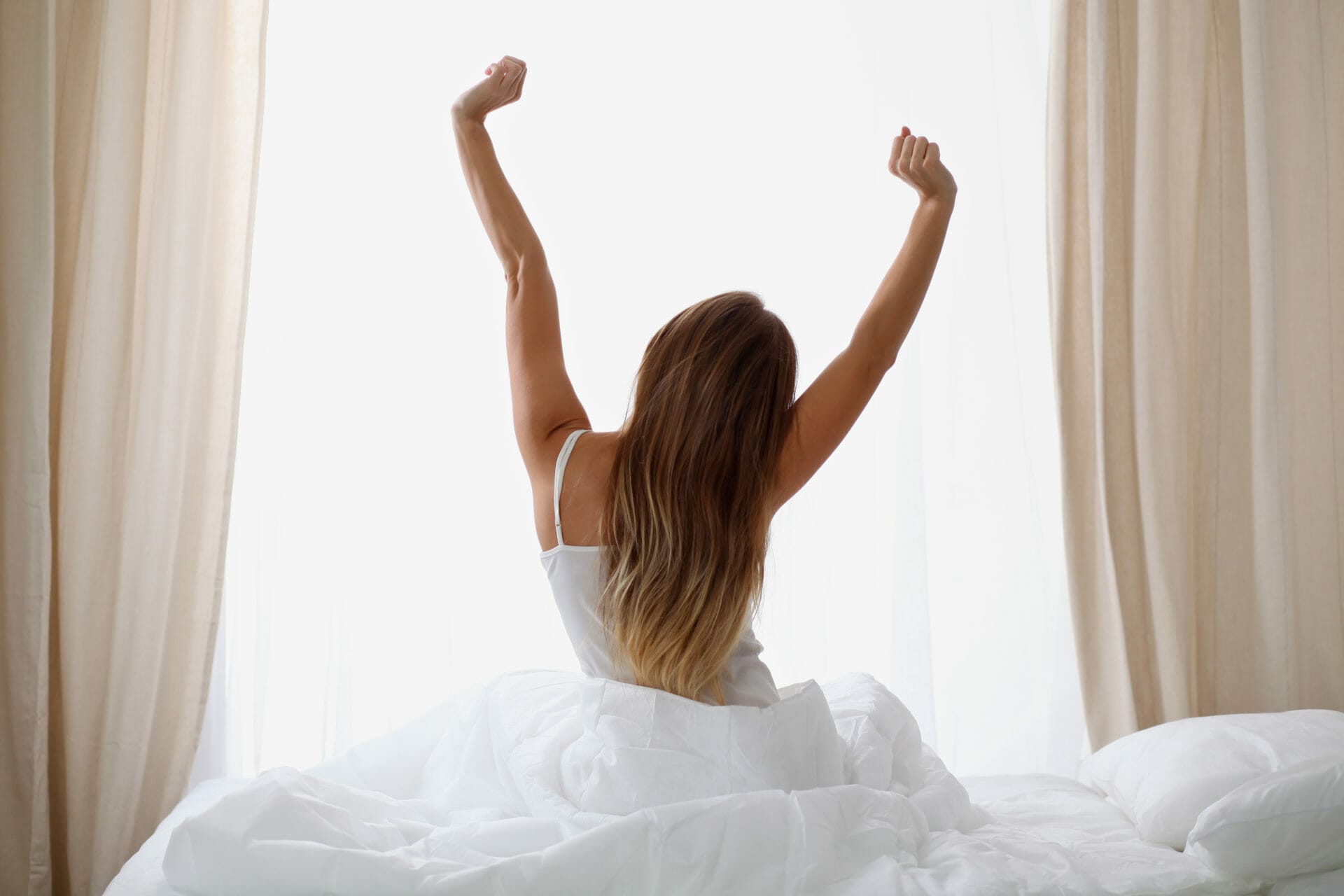
Now that we know what negative consequences sleep deprivation can have, let’s explore what it means to sleep well.
There are three main components to sleep that you should pay attention to, including:
- Length of sleep
- Circadian rhythm
- Quality of sleep
There is no universal rule to how long you should sleep, but most adults do well with seven to eight hours.
I usually sleep until I wake up without an alarm. I can do that because I pay attention to, and structure my life around, my circadian rhythm. That means I go to bed every day around 9 p.m. and wake up shortly after 5 a.m.
If that sounds undoable to you, bear with me — we’ll talk more about sleep hygiene and its social implications in a bit.
By having a consistent sleep routine, I wake up when I’m rested having fulfilled my sleep needs. How much sleep I need every night varies depending on the strain I’ve put on my body the previous day (and any sleep debt I might carry).
By having a consistent sleep and wake time, I allow my body to get as much restorative sleep as possible.
That brings us to sleep quality and the stages of sleep.
A healthy sleep cycle consists of the following stages of sleep:
- Awake time
- Light sleep
- Deep sleep
- REM sleep
During the course of a night, your body consistently cycles through these stages of sleep in approximately 90 to 120-minute intervals. In general, most of the deep sleep occurs in the first half of the night, and most of the REM sleep occurs in the second half of the night.
It might sound strange, but being awake is also part of the normal sleep cycle — even if you often don’t remember waking up a few times in the middle of the night.
To feel sufficiently rested the next day, you should spend approximately 40% of your sleep in the restorative phases of sleep. That means deep and REM sleep combined.
I can tell when I’ve spent less time than that in deep sleep, because I don’t feel as rested and energetic the next day. That happens when I drink alcohol, when I work out too hard, or when my sleep gets disturbed during the first half of the night.
Top 7 Things That Can Prevent You From Sleeping Well
Here are some things you should avoid in order to have a solid night’s sleep.
1. Screen Time
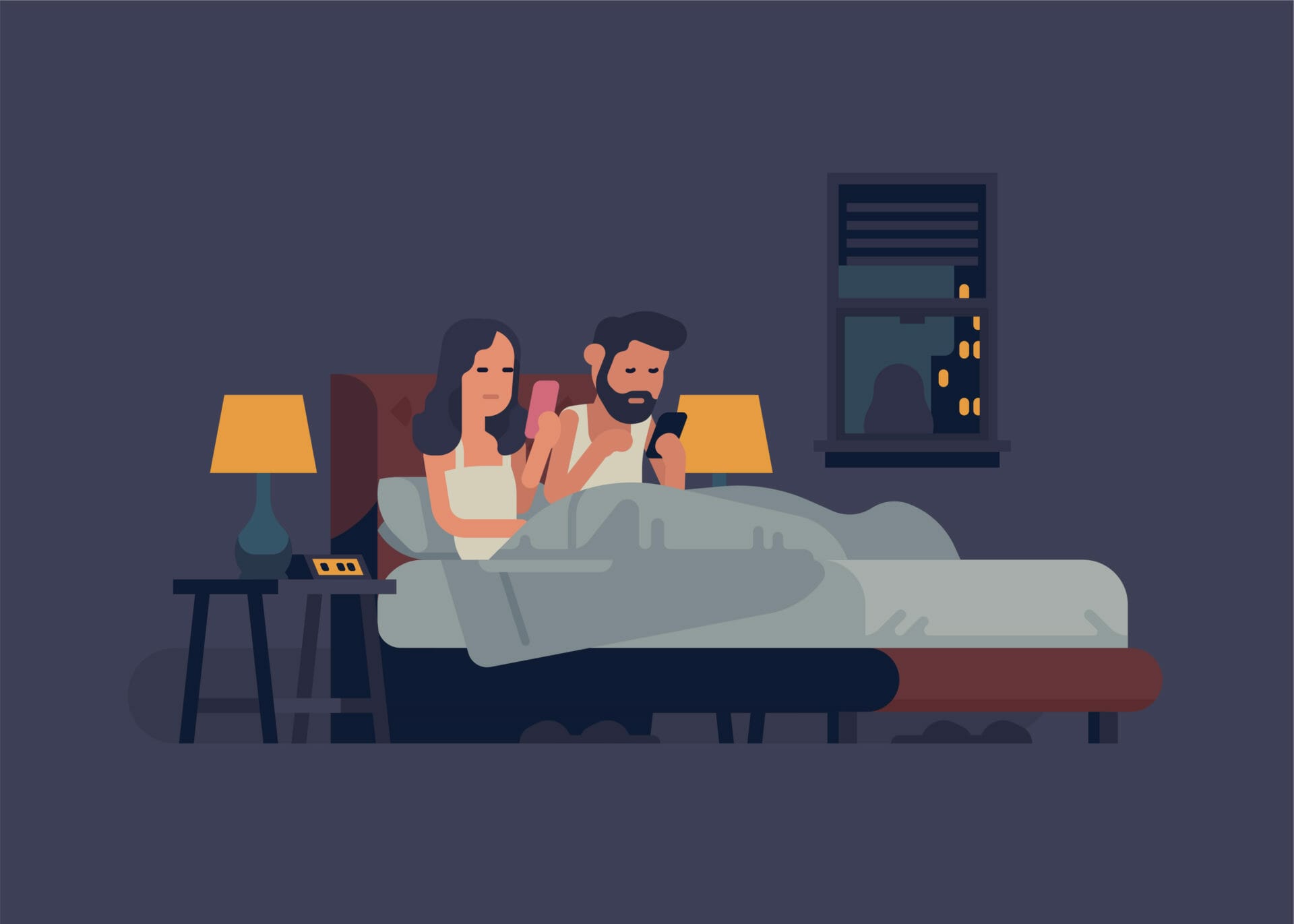
The screens on modern electronic devices emit blue light that has a relatively short wavelength that can prevent your body from releasing certain sleep-inducing hormones, such as melatonin.
That’s why I recommend not looking at digital screens for two hours before bedtime. If you do, wear blue-light-blocking glasses. In our house, we all wear these glasses — even the kids.
2. Sources of Light
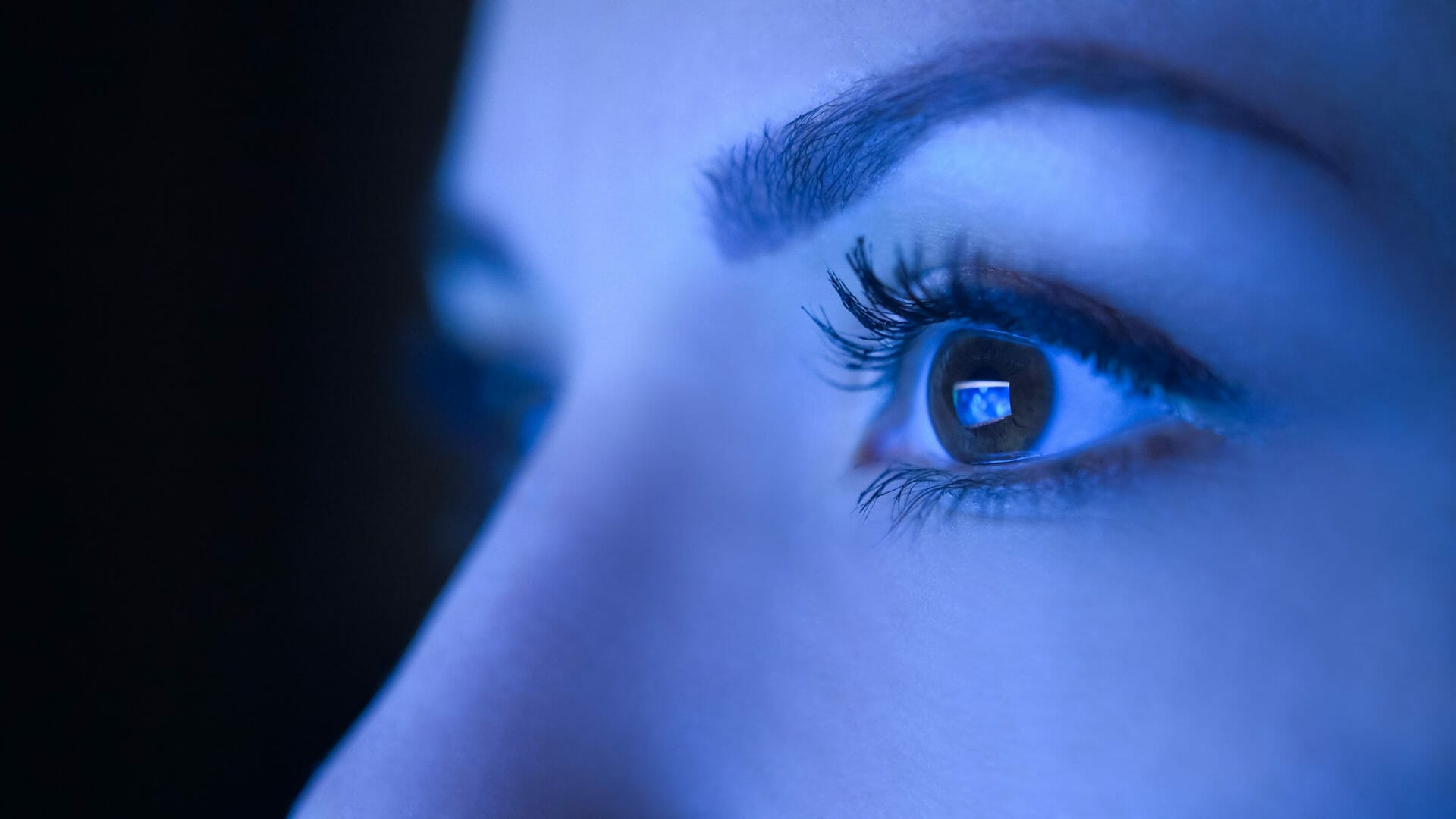
Besides computer screens and TVs, other sources of light — such as the LEDs used in energy-efficient light bulbs — also emit blue light.
That’s why I recommend wearing blue-light-blocking glasses and covering all status LEDs from electronic devices (such as chargers and your smoke alarm).
3. Alcohol Consumption

A common misconception is that consuming alcohol makes you sleep better. That’s an understandable assumption, considering that many people start to feel sleepy after even just a single glass of wine.
While it’s true that drinking alcohol might make you fall asleep quicker, it actually interferes with REM sleep during the second half of the night.
The likely reason for that is the alcohol’s metabolites, which act as stimulants in your body.
4. Strenuous Workouts Before Bedtime
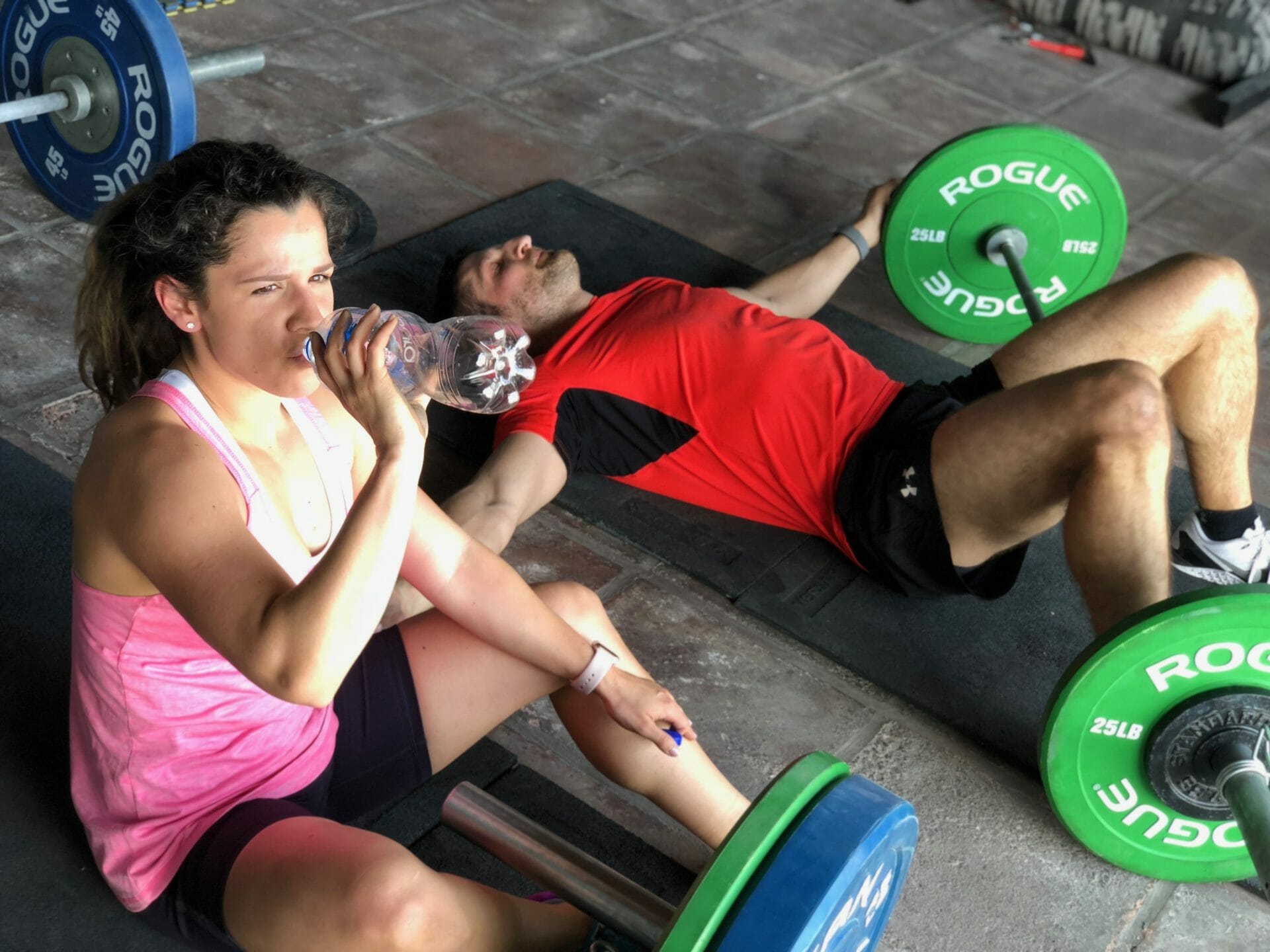
The first time my wife and I participated in the CrossFit Open, we couldn’t sleep.
That workout started at 5 p.m., and it was more strenuous than anything we had done before.
We didn’t know it at the time, but unusual physical stress can negatively impact your sleep or prevent you from falling asleep in the first place.
That’s why I recommend working out at least a few hours before bedtime.
5. Stress
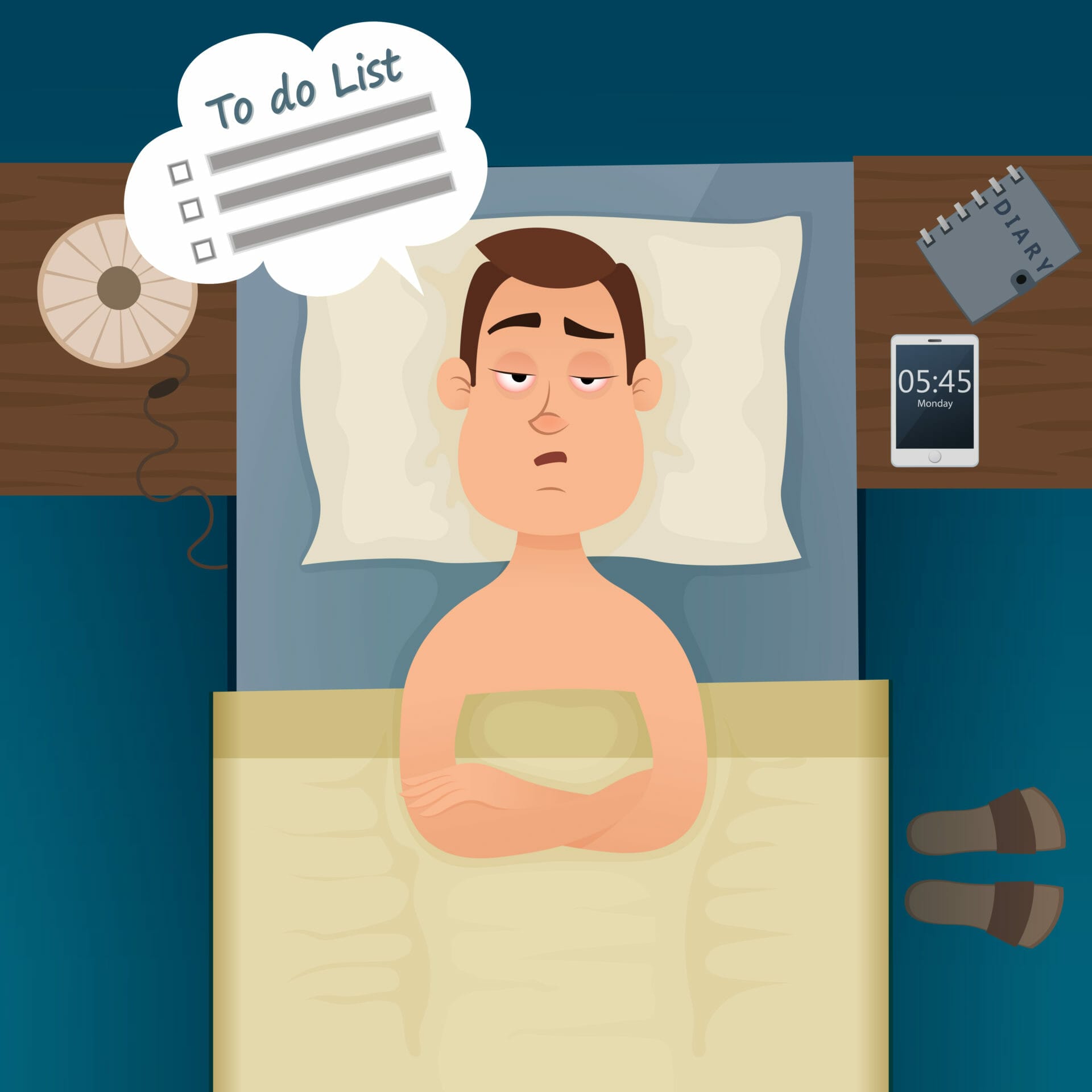
It shouldn’t come as a surprise that stress can cause sleepless nights. That applies to both positive and negative stress. A situation that makes you angry, anxious, or even euphoric can result in your head spinning when it’s time to go to bed.
I’ve experienced this many times. And in these situations it used to take me forever to fall asleep. But now, I’ve learned to better deal with such (sometimes unavoidable) scenarios.
Here’s what I do:
I focus on my breathing and count my breaths. Eight seconds in, one second hold, six seconds out — or whatever cadence works for you.
By counting my breaths, I focus only on breathing and forget everything else that my brain wants to occupy itself with.
If that doesn’t work, I take melatonin — a harmless yet effective supplement that tells my body it’s time to sleep.
Since melatonin has an incredibly short half-life time, it doesn’t impact the second half of the night. That means melatonin levels decrease quickly and you won’t feel groggy in the morning (like you do with Benadryl or over-the-counter or prescription sleeping aids).
I’ve also had great success managing stress and falling asleep quicker with a neuroscience device called Apollo.
6. Overeating
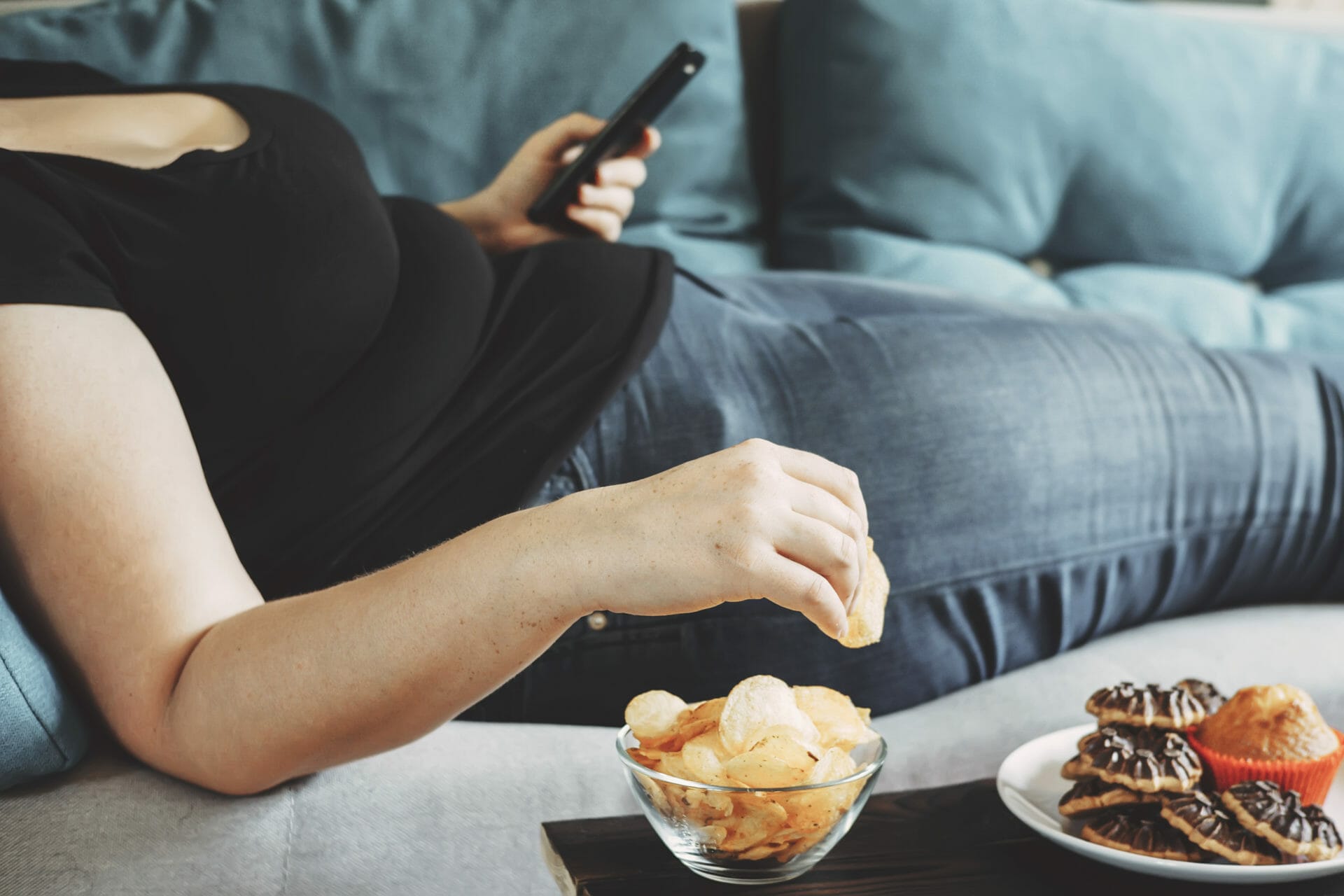
The human body is relatively efficient when it comes to digesting food while you sleep. That’s because there’s often less influence from the sympathetic nervous system that’s more engaged during the day.
However, if you overeat, your body has to work overtime to digest that food. That can negatively impact the quality of your sleep.
I fast every day for 16 to 20 hours (a strategy known as intermittent fasting), and that often means skipping breakfast and eating only lunch and dinner. However, because I work out five or six times per week, I have increased caloric needs that usually results in one to two large meals.
I’ve noticed that when eating a large meal for dinner — especially if it’s close to bedtime — I don’t sleep well. That’s why I’ve started experimenting with skipping dinner and either only having lunch or having breakfast and lunch.
So far, not having a full stomach before going to bed has been working better for me.
7. Video Games

While video games and screen time go hand-in-hand, it’s worth mentioning them separately because of their popularity.
Also, many people play video games at night (because that’s when they have free time).
However, early studies have shown that playing video games before bedtime is correlated with “a reduction of Total Sleep Time (TST) and an increase of Sleep Onset Latency (SOL), modifications of the REM sleep and Slow Wave Sleep (SWS), and increased sleepiness and self-perceived fatigue.”
In other words, playing video games in the evening decreases your quality of sleep. I don’t know whether these studies have looked into the effect of blue-light-blocking glasses, but if you’re a gamer I would consider wearing them to see if it makes a difference.
Now that you know what can negatively impact your sleep, what can you do to improve your sleep and fall asleep quicker?
Related: Another factor that can negatively impact your sleep is poor indoor air quality. We recently installed the HypoAir Bi-Polar purification system to help neutralize pollutants such as allergens, dust, pet dander, volatile organic compounds, mold and mildew. Read my HypoAir Bi-Polar whole house air purifier review to learn more about why improving your home’s indoor air quality can make a big difference in how you feel.
7 Tips to Fall Asleep Quicker
My wife always makes fun of me because I’m out as soon as my head hits my pillow.
That’s not entirely true, but I usually fall asleep within 10 minutes of closing my eyes.
If you have trouble falling asleep quickly, consider applying some of the following tips:
1. Reduce Your Light Exposure Two Hours Before Bedtime

As I’ve mentioned before, artificial light can negatively impact the release of sleep-inducing hormones.
That’s why I recommend reducing your exposure to artificial sources of light at least two hours before bedtime.
If you don’t feel like replacing all of your lightbulbs with candles, I’d recommend getting a pair of blue-light-blocking glasses. I wear mine every night after dinner, and I can feel the difference.
2. Take a Hot Bath or Shower

The common wisdom is that a hot shower or bath before bedtime makes you sleep better — or at least, fall asleep quicker. That’s what we do with babies, right?
But do you know the scientific reason behind that phenomenon?
I recently learned about it via the WHOOP podcast. Evidently, a hot shower or bath actually lowers your core temperature, because blood flow is redirected to your extremities.
Coincidentally, your core temperature needs to drop by one to two degrees (Fahrenheit) before you can fall asleep. That’s why a hot shower or bath makes you fall asleep quicker.
3. Make Sure Your Bedroom is Dark and Cool
In the previous section, we touched on the fact that both temperature and light can impact your sleep. You can learn more about the specific mechanics of how and why in the video above.
In a nutshell the less energy your body has to spend cooling you down, the more of its resources it can redirect to repairing, recovering and digestion.
I recommend turning down your AC overnight to prevent your room from getting too hot. Thermoregulation is an incredibly expensive process for your body, and it can severely impact how recovered you are the next day.
We recently got a cooling mattress from Eight Sleep and are loving it! Read my Eight Sleep review to learn about how it works.
Light can also disturb sleep, so it’s essential to make the room you sleep in as dark as possible. Practically speaking, that means using blackout curtains, turning off all electronic devices, and possibly wearing a sleep mask.
4. Have Sex (and an Orgasm)

During an orgasm, your body releases oxytocin (the “love hormone”) and vasopressin, both of which researchers have associated with sleep.
The reason for that is because those two chemicals are often accompanied by melatonin. Plus, they’re known to counter stress hormones.
Alternatively to sex, you can simply wrap your arms around a loved one (or a stranger… with consent), as hugging also triggers the release of oxytocin.
5. Supplement with Melatonin and CBD
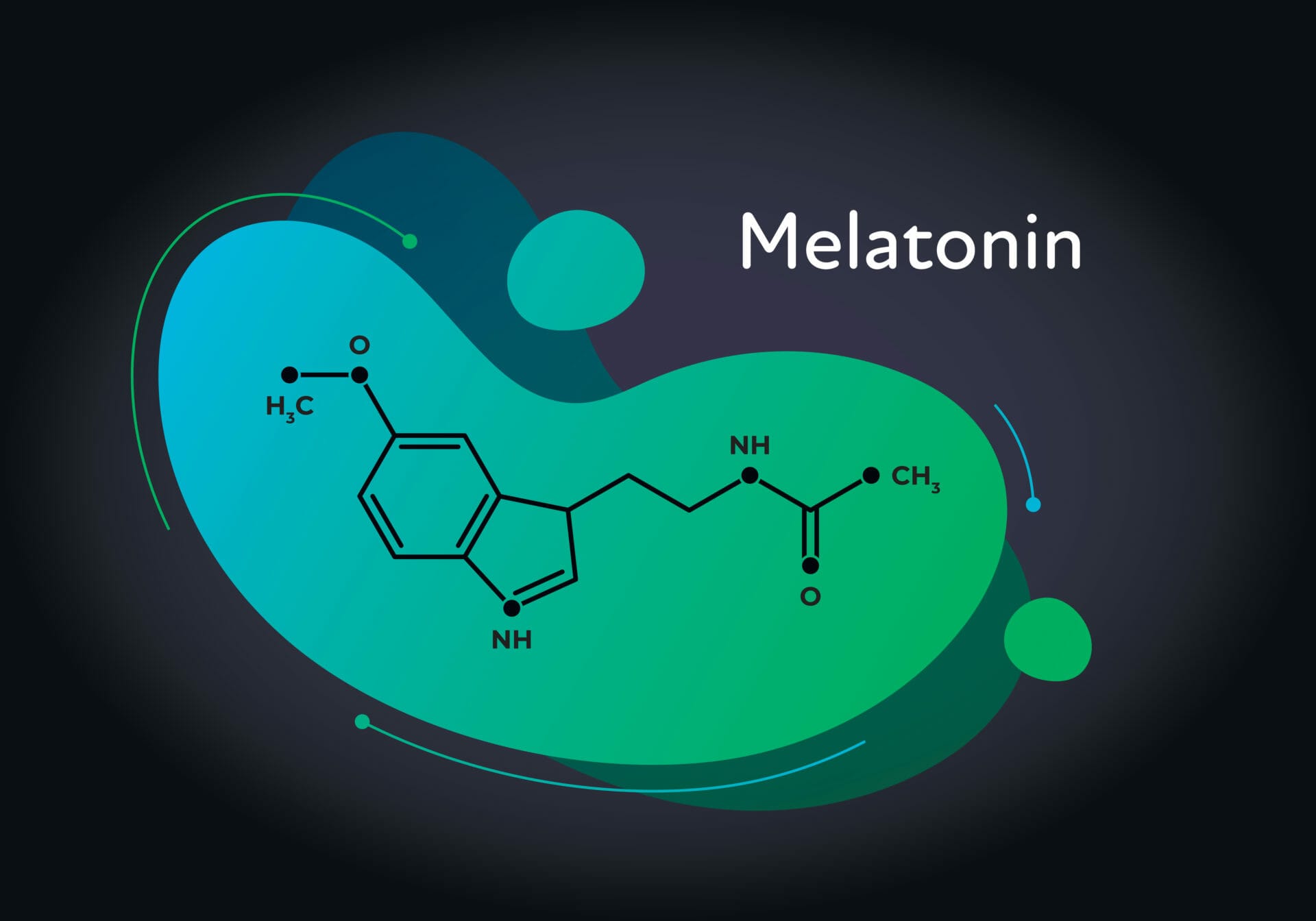
If nothing else works, you might consider supplementing with over-the-counter melatonin. Just make sure you use a high-quality product that doesn’t contain soy, wheat, sugar or other fillers.
I rely on melatonin when I travel across timezones, or on those (rare) occasions when I have trouble clearing my head and falling asleep.
There are other good natural sleep aids that might work for you, such as the amino acid tryptophan, which occurs naturally in turkey and milk.
That’s why some people swear by having a warm glass of milk before bedtime. While that might work to help you fall asleep quicker, dairy has so many issues that I highly recommend against it.
I recently started experimenting with natural sleep aids from Sonnet, a supplement manufacturer that also offers sleep coaching.
Sonnet offers several different formulas, but the one I liked best is the one the company calls Sleep + Restore. It includes extended-release melatonin, tart cherry, valerian root, ashwagandha, GABA and venetron, which is a powdered extract from the leaves of a wild perennial plant native to Central Asia and warm regions in Europe.
By using Sleep + Restore an hour before bedtime, I’ve noticed a reduced sleep latency (I fall asleep quicker) and more deep and REM sleep.
6. Keep a Consistent Sleep Routine
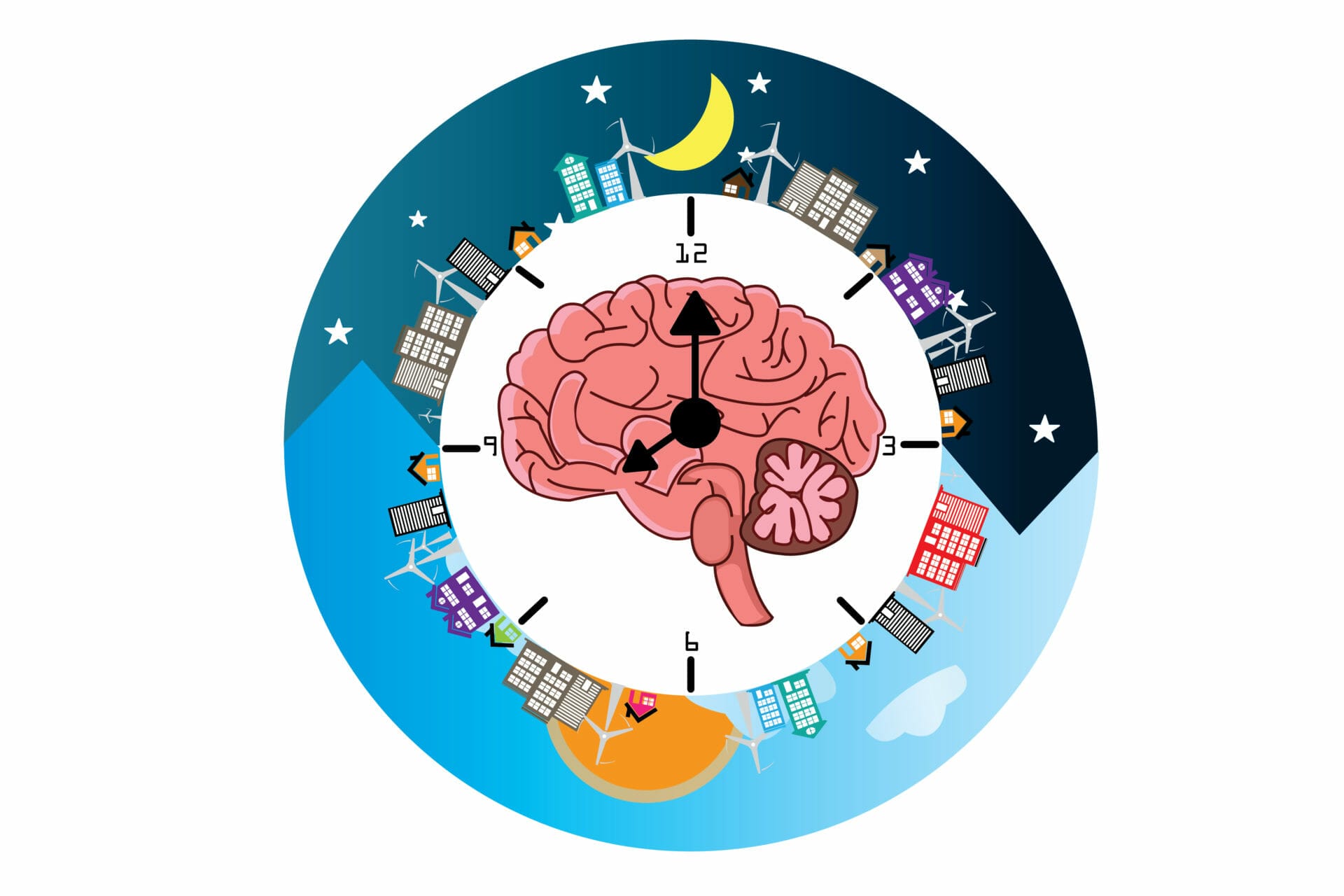
Your sleep routine is arguably the most important aspect of sleeping well.
Why?
Because every cell in your body has a circadian (or 24-hour) rhythm.
That means your body works best if you follow a routine — a principle that applies to all areas of life. If you eat something new or unexpected, your stomach might get upset because you’re not used to it. If you perform a new exercise in the gym, you get sore as a response to that.
The same goes for sleep. The more consistent you are with a sleep routine, the better your body can leverage rest to restore and recover.
If you go to bed every day at 9 p.m., your body will — like clockwork — start to increase its melatonin output by around 7 p.m. On the other hand, if you have an inconsistent bedtime, your body might release melatonin too early or too late, thus impacting your sleep.
I recently listened to a podcast with Emily Capodilupo from WHOOP, who pointed out that we all provide our babies with routines: there’s nap time and bath time, because we know that babies thrive on routines.
But guess what? Our cells never outgrow the circadian rhythm! Humans thrive on routines; we’re simply more efficient if we know what’s coming.
Analysts at WHOOP have noticed that among their members, highly-consistent sleepers are getting both more sleep and better quality sleep.
Also, a 2017 study from Harvard University showed that “sleep consistency was able to predict academic performance.” Coincidentally, WHOOP data found that the same was true for athletic performance.
7. Create a Moment of Separation Between Day and Night
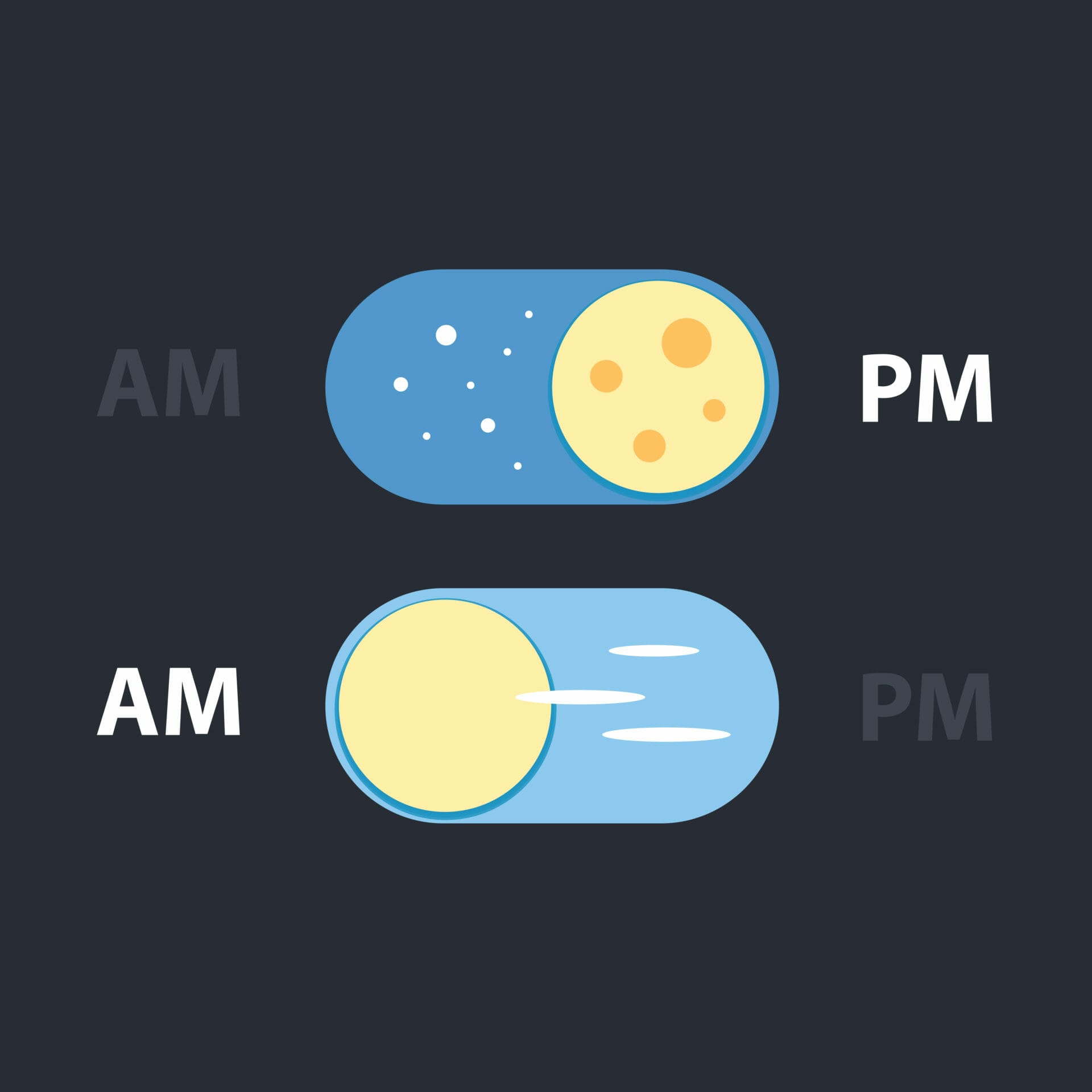
Having a sleep routine is one of the best ways to create a clear separation between day and night. Doing so helps your body get ready for sleep and start releasing the relevant sleep-inducing hormones.
It’s especially effective if you can’t stick to a strict bedtime. For example, if you’re a shift worker or have other social or professional obligations that prevent you from consistently going to bed at the same time every day.
Practically, that means making specific tasks part of your bedtime routine, such as:
- Take a hot shower
- Stop using your phone
- Read a book
- Practice mindfulness or breathing
- Use an essential oil diffuser
In other words, make a clear-cut distinction between all the stuff you do during the day and the things you do before bedtime.
By doing so, your body can anticipate what’s coming next and start getting ready for it.
5 Tips to Sleep Better and Longer
Besides not being able to fall asleep quickly, some people struggle with staying asleep.
The tips below are meant for otherwise healthy individuals, who do not suffer from medical conditions such as sleep apnea or other sleep disorders. If you fall into the latter category (or suspect that you might), you should consult with your doctor and/or see a sleep specialist.
1. Create an Environment That’s Conducive to Sleeping
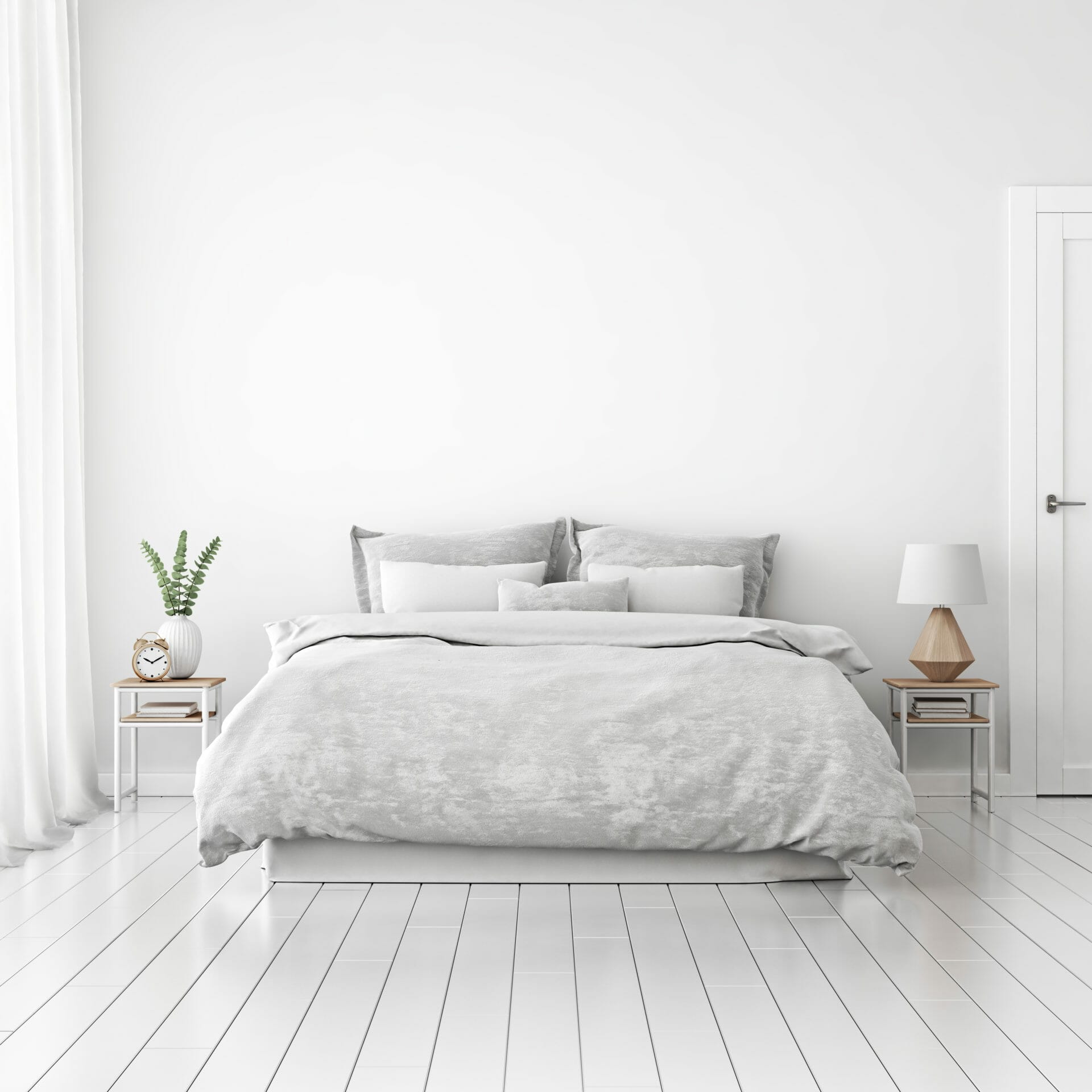
Both my wife and I love how our bedroom (and our bed in particular) looks and feels.
As a result, every evening, we both look forward to wrapping ourselves in crisp sheets and resting on top of a mattress covered in a layer of soft memory foam.
I think it’s important to create a space that’s conducive to sleeping well. What that means specifically might be a bit different for everyone, but here’s what has worked for us.
- Purchase a mattress and bedding that you and your partner feel comfortable in. For us, that meant a combination of crisp sheets and a soft, memory foam mattress.
- Keep your bed and bedroom neat. The less clutter I see, the less cluttered my mind is.
- Make sure the room is dark. We have blackout curtains to reduce our exposure to light.
- Limit the use of electronic devices. That means no TV, iPad or phone in the bedroom. I often leave my iPhone in my office, just so I don’t have an opportunity to use it before going to bed (or immediately after waking up).
2. Don’t Share Your Bed With Pets or Kids

We have two kids and a cat, and every time one of them has slept with us, our quality of sleep has suffered.
I imagine that most people don’t realize how sharing a bed with a pet or toddler impacts their sleep because they don’t have a way to measure it objectively. This is where sleep trackers can help.
I track my sleep cycles every night using WHOOP, so I can tell exactly what impacts the quality of my sleep and what doesn’t. And the fact of the matter is that kids and pets do.
As a result, we banned our cat from our bedroom a long time ago, and we have strict “everyone sleeps in their own bed” rules with the kids. (The kids got used to it pretty quickly, but the cat still hasn’t forgiven us.)
And yes, even if the kids are sick, they sleep in their own rooms. That ensures that everyone has the best possible chance of getting a good night’s rest.
3. Manage Your Salt and Water Intake
If you’re on a ketogenic diet like I am, you’re probably consuming more salt than the average person. I’ve noticed that too much salt increases the frequency of urination.
That’s why I recommend laying off salt a few hours before bedtime. If you don’t, you might have to get up once or twice during the night because you feel the urge to pee.
The same goes for liquids. It probably seems like common sense, but don’t drink a gallon of water before bedtime.
4. Stop Consuming Caffeine at Noon

When I was young, I often had an espresso after dinner. I don’t do that anymore! Guess why? Caffeine negatively impacts my sleep.
I know a bunch of people who drink coffee in the late afternoon or evening, claiming that it doesn’t impact them. That’s bullshit — they just don’t know what it does (or to what degree).
Some people are indeed more sensitive to caffeine than others. It’s also a fact that the rate at which caffeine is metabolized in the body differs from person to person; a fact that could well be related to genetic makeup.
However, caffeine is a stimulant, and it does affect your (deep) sleep — even if you don’t realize it.
That’s why I recommend avoiding coffee or other caffeinated beverages after noon. That way, your body has ample time to clear out the caffeine.
5. Reduce the Temperature in Your Room
As I mentioned previously, sleeping in a room that’s too warm isn’t good for you because your body has to waste energy regulating your core temperature.
So turn your AC down a few degrees at night.
6. Use White Noise
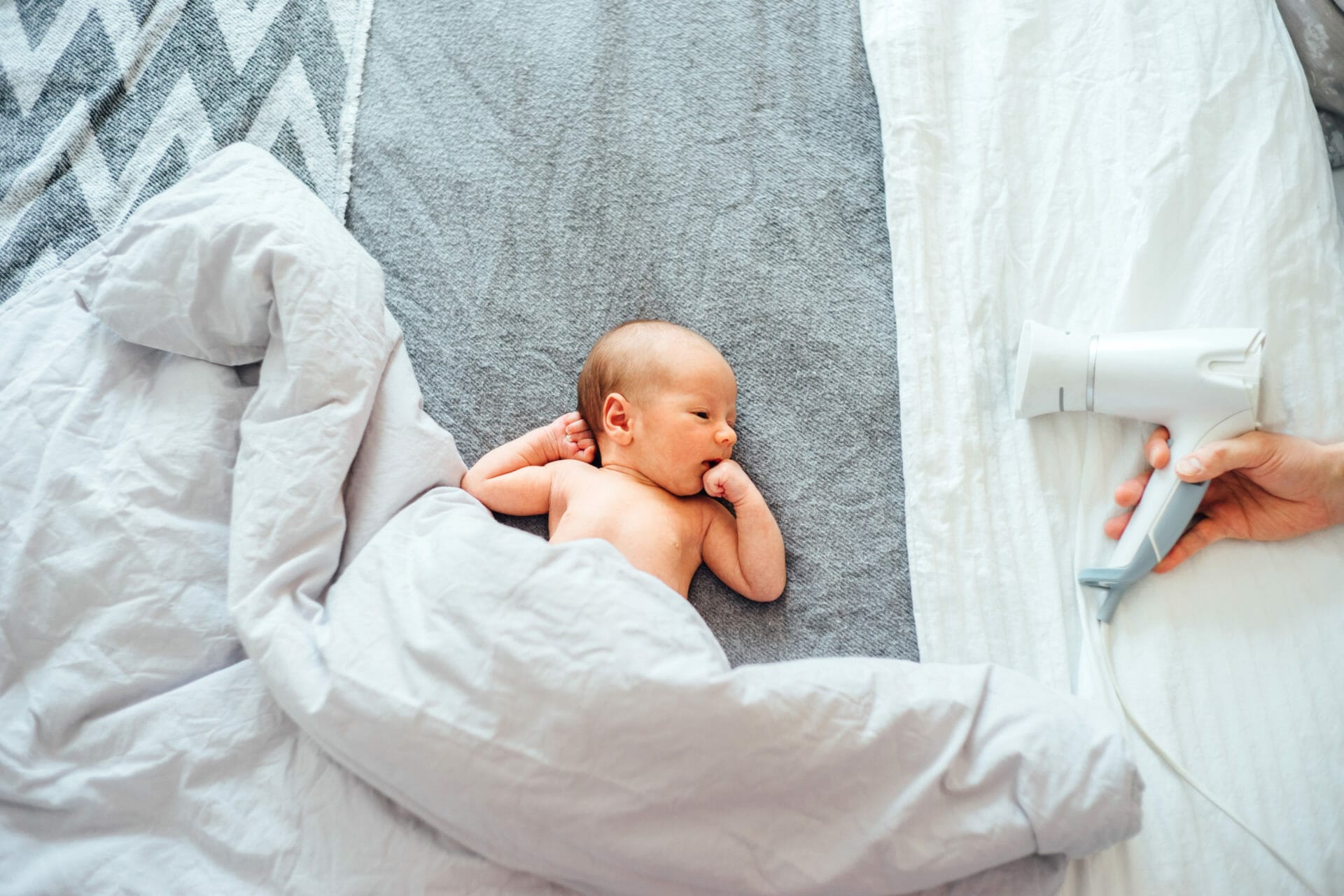
White noise was a lifesaver when our kids were babies. It mimics the noises they heard when they were inside the womb, and helps them relax.
But white noise isn’t just for babies. Our kids still use it to mask noise, as do we on occasion.
The other day, when I came from a week-long trip, the cat wouldn’t stop meowing after I went to bed. So I played white noise on my HomePod to block out that noise.
Instead of white noise, you can also experiment with soothing music specifically made for sleep.
7. Don’t Work Out Too Hard in the Evening
As I mentioned above, strenuous workouts can hamper your ability to fall and stay asleep. So keep your late-day workouts light if you notice any issues related to sleep.
8. Watch What You Eat and Drink
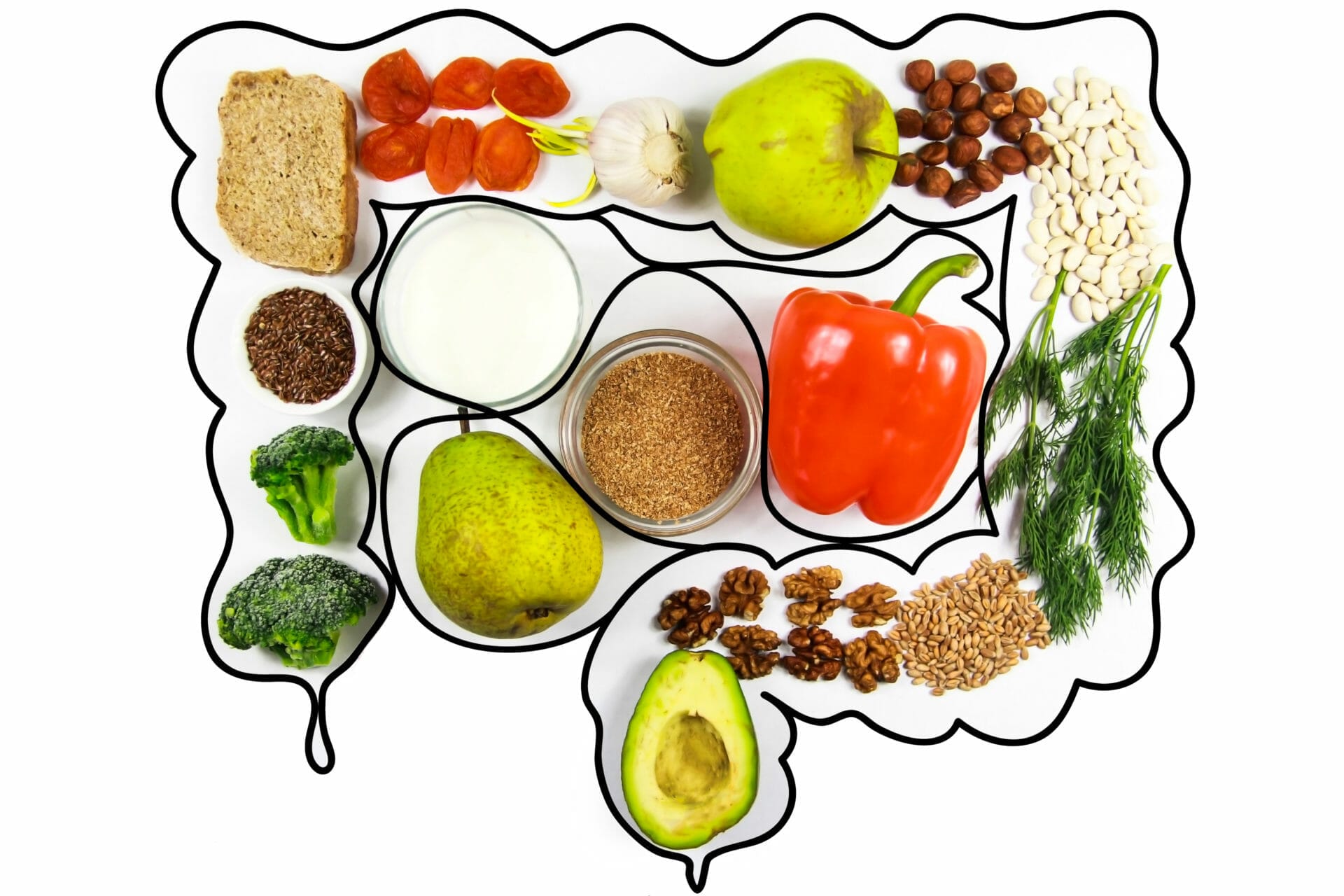
Alcohol is an obvious issue when it comes to sleep. That’s why I recommend avoiding alcohol consumption before going to bed.
That doesn’t mean you can’t drink at all, but you should realize that alcohol is a toxin that your body (primarily your liver) — has to get rid of.
On average, your body can metabolize one drink per hour. As a result, you shouldn’t drink more than two glasses of alcohol within two hours of bedtime.
Besides alcohol, other foods might impact your sleep. We covered coffee earlier in this article, but also be aware of other natural sources of caffeine, such as tea, dark chocolate and cocoa.
I used to eat very dark chocolate (95%+) before bedtime, until I realized that it had caffeine.
9. Be Aware of Your Body’s Signals and Cues
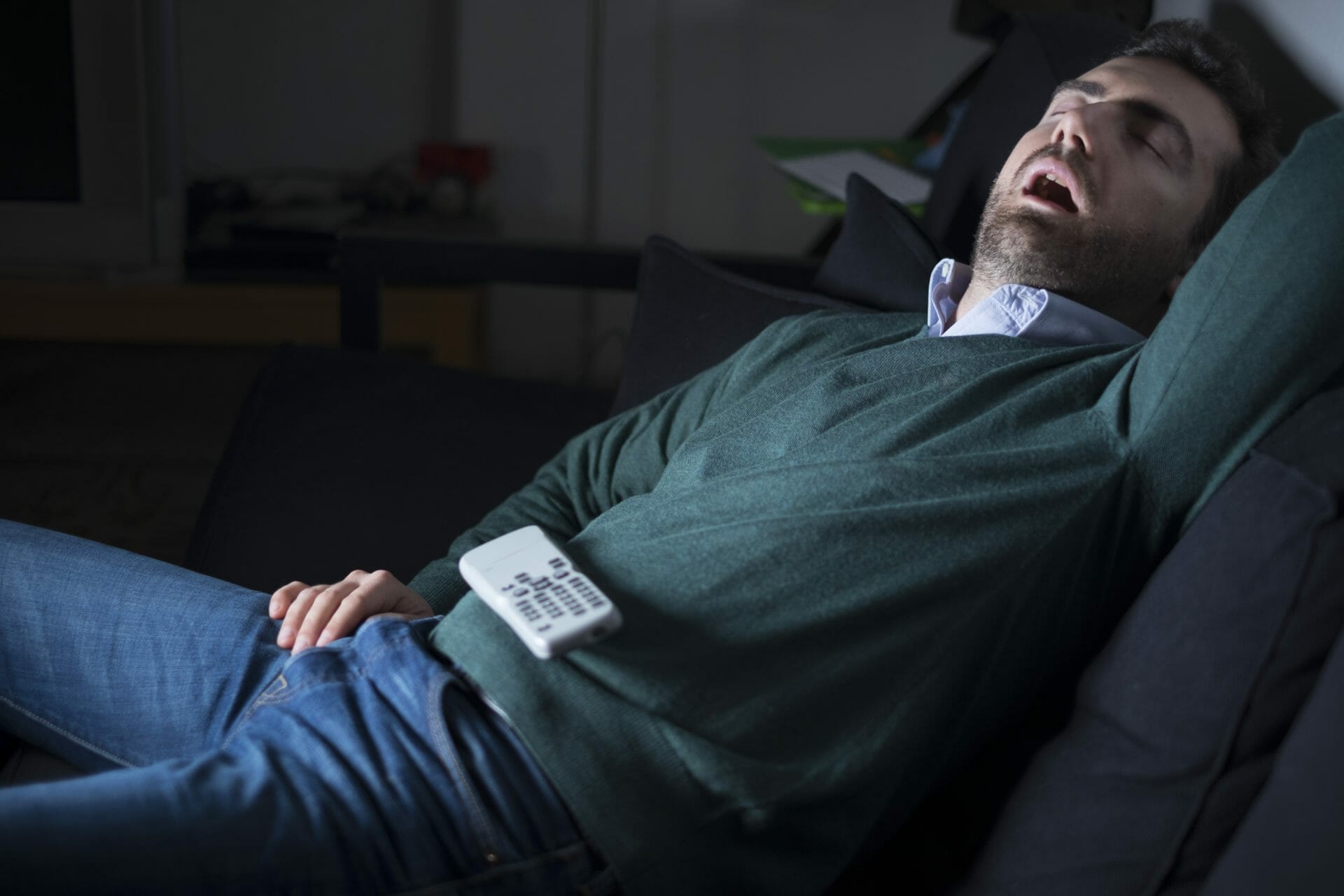
When you get sleepy, it’s typically an indication that your body needs rest. If you ignore that “sleep pressure,” your body goes into overdrive because it thinks something is off.
When that happens, your body releases cortisol, epinephrine, and other hormones that give you a surge in energy. You might have noticed that “second wind” at a party.
While that ability is great for survival, it’s bad news if that happens in a typical setting (like watching TV at home). So, listen to your body and go to bed when it tells you to.
10. Maintain Proper Sleep Hygiene and Rhythm
Consistent sleep is important for falling asleep quickly. But it’s also important for your overall quality of sleep.
Data has shown that sleep consistency can directly impact how much time you spend in deep and REM sleep.
In fact, by keeping a consistent sleep-wake cycle, you can increase your deep sleep by up to 15 minutes, and your REM sleep by up to 36 minutes, according to data from WHOOP.
Sleep Myths and Misconceptions
Let’s talk about some of the myths and misconceptions surrounding sleep — many of which I’m sure you’ve heard (and maybe even believe to be true).
Catching Up on Sleep on the Weekend
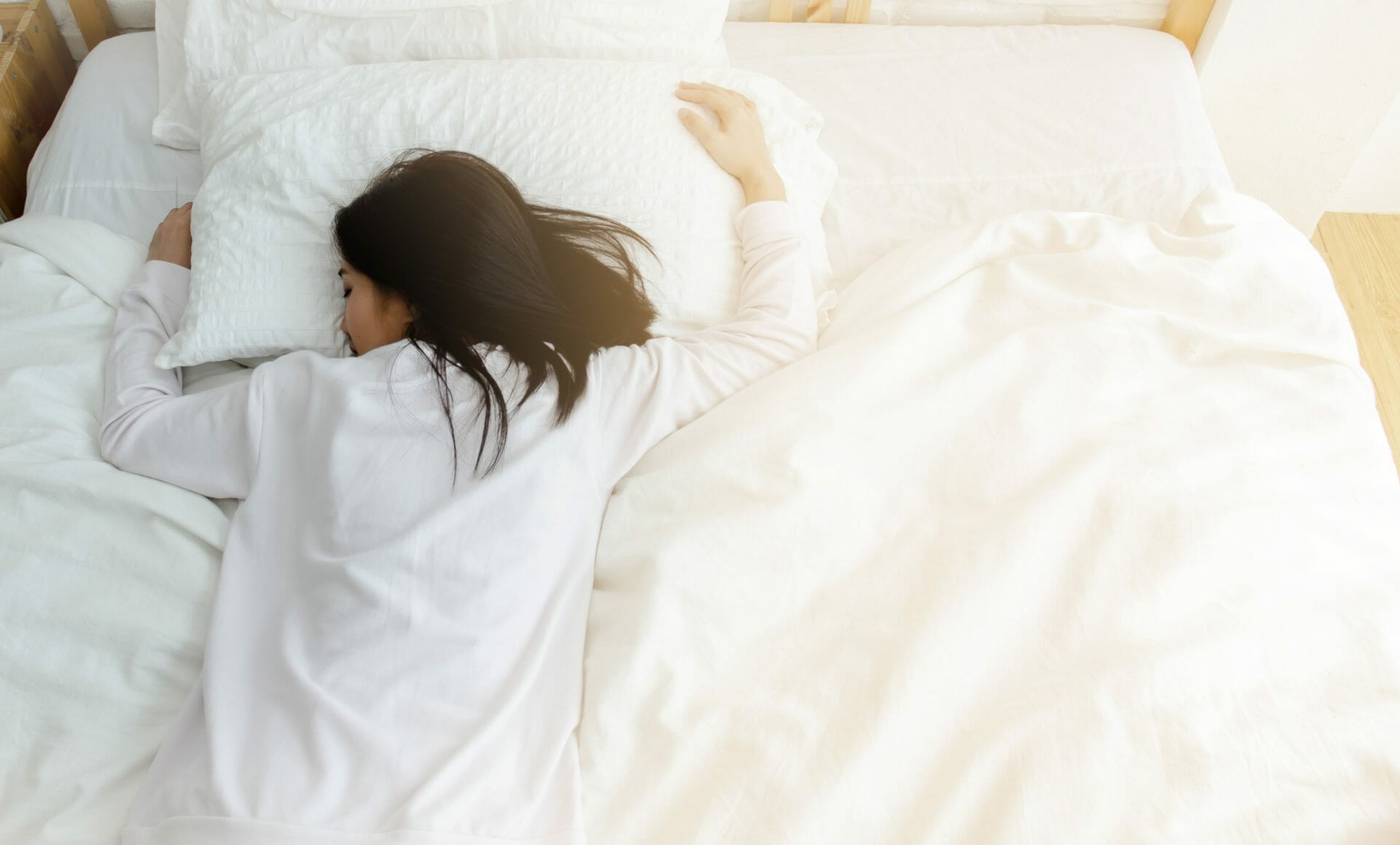
One of the most common misconceptions I hear is that you can make up for sleep debt by sleeping longer on the weekend.
In most cases, that’s mathematically impossible. Sleep debt is like credit card debt — it compounds and is often never forgiven.
Think about it… if you sleep only six hours instead of eight hours every night during the week, you have accrued a sleep debt of 10 hours by the time the weekend rolls around. How are you going to make up for 10 hours of lost sleep in two days?
Maybe you make up half of that and then carry the remaining five hours into the next week, during which you pile on an additional 10 hours.
So don’t live with the illusion that you can make up for lost sleep by sleeping in on the weekend. Get the sleep you need every single night.
I Only Need Four Hours of Sleep
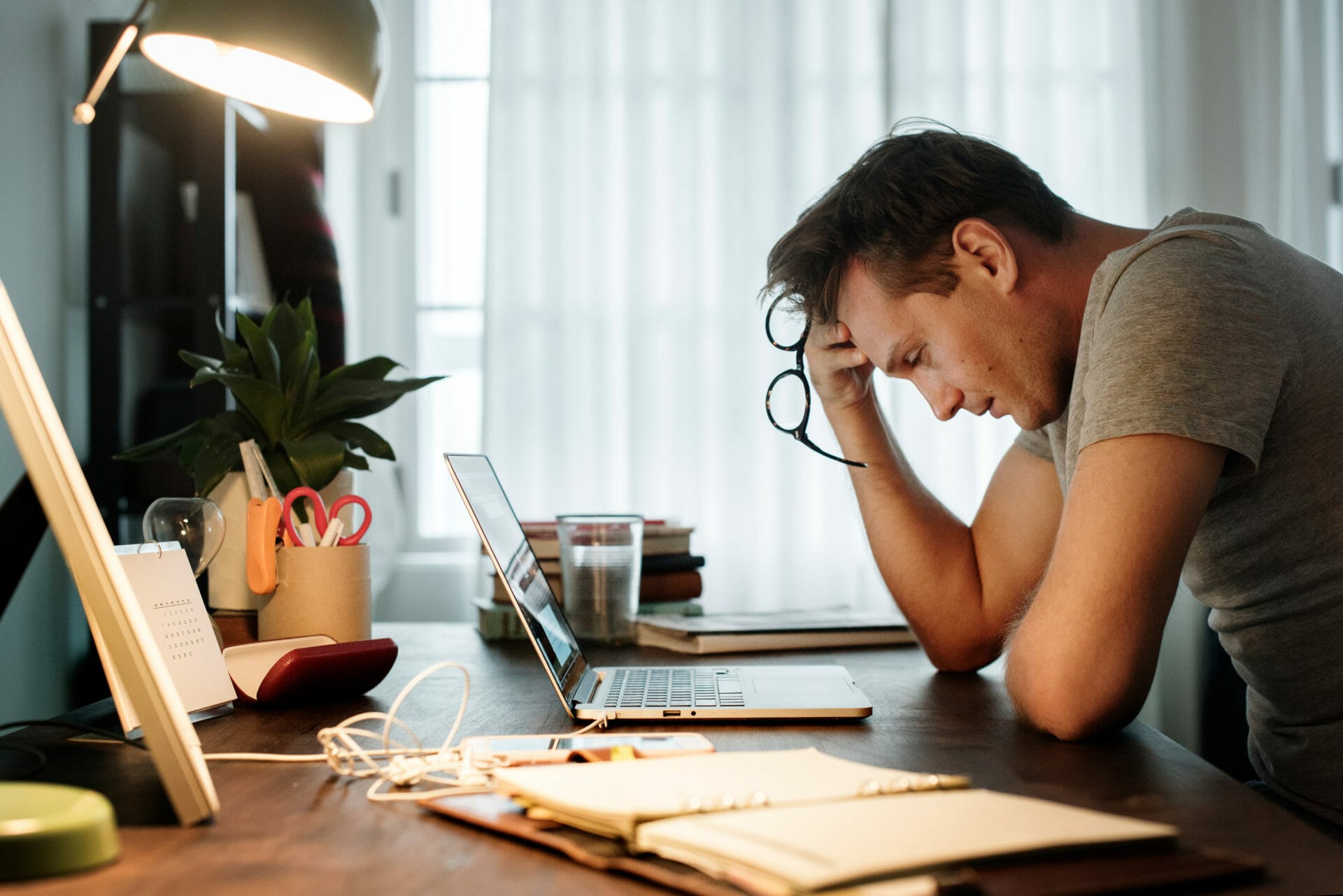
Sleep need varies from person to person, and I’m sure some people need less sleep than I do.
However, those who genuinely need less than seven hours of sleep are rare — as in winning the lottery rare. Strangely enough, I seem to have an incredibly high number of “lottery winners” among my friends and family.
The issue is that most of those who believe they can get by with only a few hours of sleep just don’t know how great they would feel if they got enough sleep.
I understand the problem because I didn’t know what “feeling great” genuinely meant until I changed my diet and sleeping patterns.
But trust me: you aren’t the rare and special flower you think you are. At least not when it comes to your sleep requirements!
Chances are that you’ve just been sleep-deprived for so long that you’ve gotten used to the feeling. That’s your baseline, but it doesn’t fairly represent the potential for feeling great that you have.
Stockpiling Sleep
Much like “catching up on sleep over the weekend,” stockpiling sleep doesn’t work. In other words, you can’t sleep beyond your daily sleep needs and hope to carry it forward to the next day.
As a result, make sure you meet your body’s daily sleep needs — not more and not less.
Alcohol Makes You Sleep Better
We’ve already addressed this myth, but it’s worth repeating.
Alcohol might make you fall asleep faster, but it lowers your sleep quality. As a result, it’s not a cure for insomnia.
Social Implications of a Strict Sleep Routine

Maintaining a strict sleep/wake cycle can be socially awkward. I know that because I’m incredibly protective of my sleep and prioritize it over most other things in life.
The good news is that once the people around you have figured out what you’re doing, it becomes less of an issue.
At the end of the day, it’s all about priorities, and you have to ask yourself the question: “What’s it worth to perform at my peak levels — both mentally and physically?”
If you don’t give a crap about either one, or you do — but just not as much as hanging out with friends in a bar or playing video games — then there’s your answer.
Personally, I try to be the best version of myself I can possibly be because I pursue challenging goals that require me to be on top of my game. That’s why I decided to prioritize sleep.
Of course, I’ve also realized that sleep is the core pillar of a healthy lifestyle. If I don’t prioritize it, my health will suffer, and I don’t want that.
My wife and I started going to bed early when the kids were babies and had to be fed every few hours. So that was a somewhat natural transition, and we decided to hang on to it.
As part of that process, I discovered the benefits of getting up early (thanks to a book my sister-in-law recommended). After realizing the newfound potential of my mornings, I got hooked on getting stuff done before everyone else got up.
While being an early sleeper and riser was never a real issue for me when it came to friends and family, it was a bit more challenging at work.
In the beginning, I would make exceptions for company outings and during business trips, so that I wouldn’t have to explain or be “that guy.”
I don’t do that anymore, and the people I work with know and respect my schedule. I just returned from a week-long trade show in Las Vegas, and I was in bed by 9 p.m. every night — sometimes even as early as 8.
I know my boss thinks that I’m nuts with everything I do to optimize my health, but I’m sure he appreciates the performance I deliver day-in and day-out.
So if the team plans to have drinks after dinner or go out to a show, they already know that I won’t join them.
I think I’ve reached peak “strictness” in that everyone just assumes there’s no way that I’d stay up past 9. That’s an excellent position to be in, because it allows me to selectively break the rule if I see a return on investment.
For example, going out on a date with my wife and spending quality time with her would be such an exception. The good news is that we get tired at roughly the same time — so staying out late for us means that we’re in bed by 10 p.m. I know… we’re regular party owls.
If you’re in a similar position, just make sure that your exceptions stay exceptions and don’t become the rule.
Frequently Asked Questions
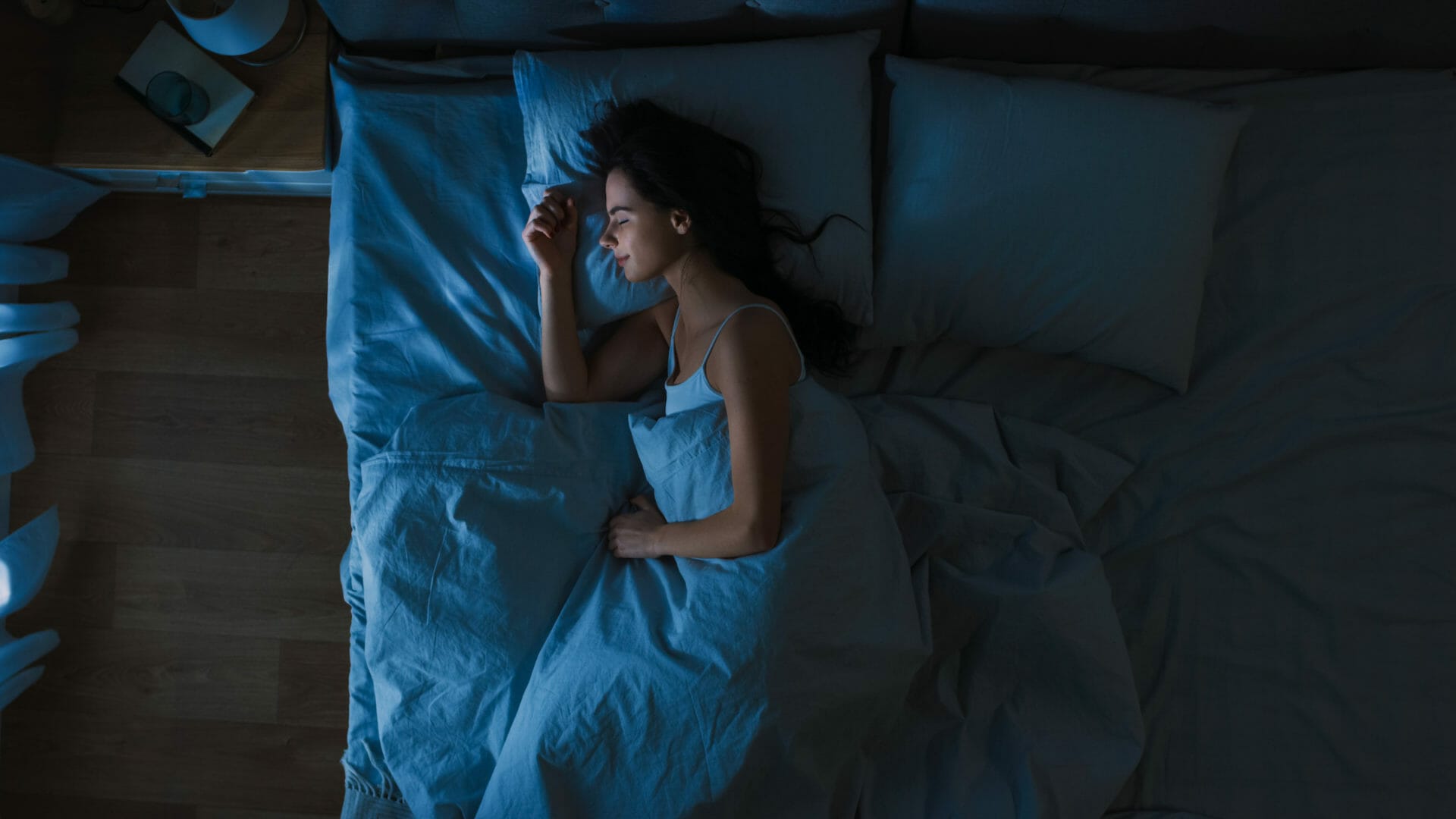
There is no specific rule about how much you should sleep, because that depends on numerous factors. Most people seem to do fine with seven or eight hours of sleep every night. However, your exact sleep requirement will vary depending on factors such as physical activity, stress, strain, sleep debt and more.
Based on my lifestyle and data from WHOOP (the advanced sleep and fitness tracker I use), I need between 7.5 and 8.5 hours every night. On most days, I don’t feel fully rested if I get less than 7.5 hours.
The average numbers above are for adults. Babies and kids have higher sleep requirements, and older adults need less sleep.
As a rule of thumb, 40% of your total sleep should be restorative sleep. So if you slept for a total of eight hours, you should have spent three hours and 12 minutes in deep and REM sleep (combined).
That really depends on your body’s requirements. The good news is that your body is usually smart enough to figure the ratio out on its own. That’s why you might sometimes see more deep sleep or more REM sleep in your sleep tracking data.
As the name suggests, non-REM sleep is all sleep that’s not REM sleep. That includes light and slow-wave sleep.
No, you can’t stockpile sleep. In other words, there’s a limit to how much you can sleep, and your body won’t allow you to sleep more or carry sleep forward. Staying in bed and trying to sleep longer once you’re fully-rested won’t provide you with additional benefits.
Additionally, most of your slow-wave sleep happens during the first part of sleep. That’s why the first half of your night is so important, and why sleeping longer (beyond what your body needs) has diminishing returns.
During intensive physical activity, you destroy muscle tissue and cause acute inflammation. Some people argue that it’s a necessary process so that the body can repair and grow the damaged tissue. That’s what makes you stronger and fitter.
However, that repair process relies on a series of metabolic processes that only get activated during the restorative phases of sleep. If you don’t get sufficient slow-wave sleep, you won’t recover and thus worked out for nothing.
Napping is undoubtedly a great way to make up for some of the sleep you didn’t get overnight. However, some of the chemical processes the body goes through at night won’t happen during a nap. So don’t think you can just take long naps and cut your nights short.
Working shifts is probably one of the worst things you can do to your body. Unfortunately, the reality is that someone has to do that work. Otherwise, we wouldn’t have nurses, doctors, firefighters, and other professionals who we rely on.
However, as much as I respect and appreciate the people who perform that kind of work, I would never consider doing it myself because I understand the havoc it would wreak on my health.
Central sleep apnea (CSA) is a sleep disorder which intermittently leads to your inability to breathe. You can learn more about that here.
Final Words – The Importance of Sleep
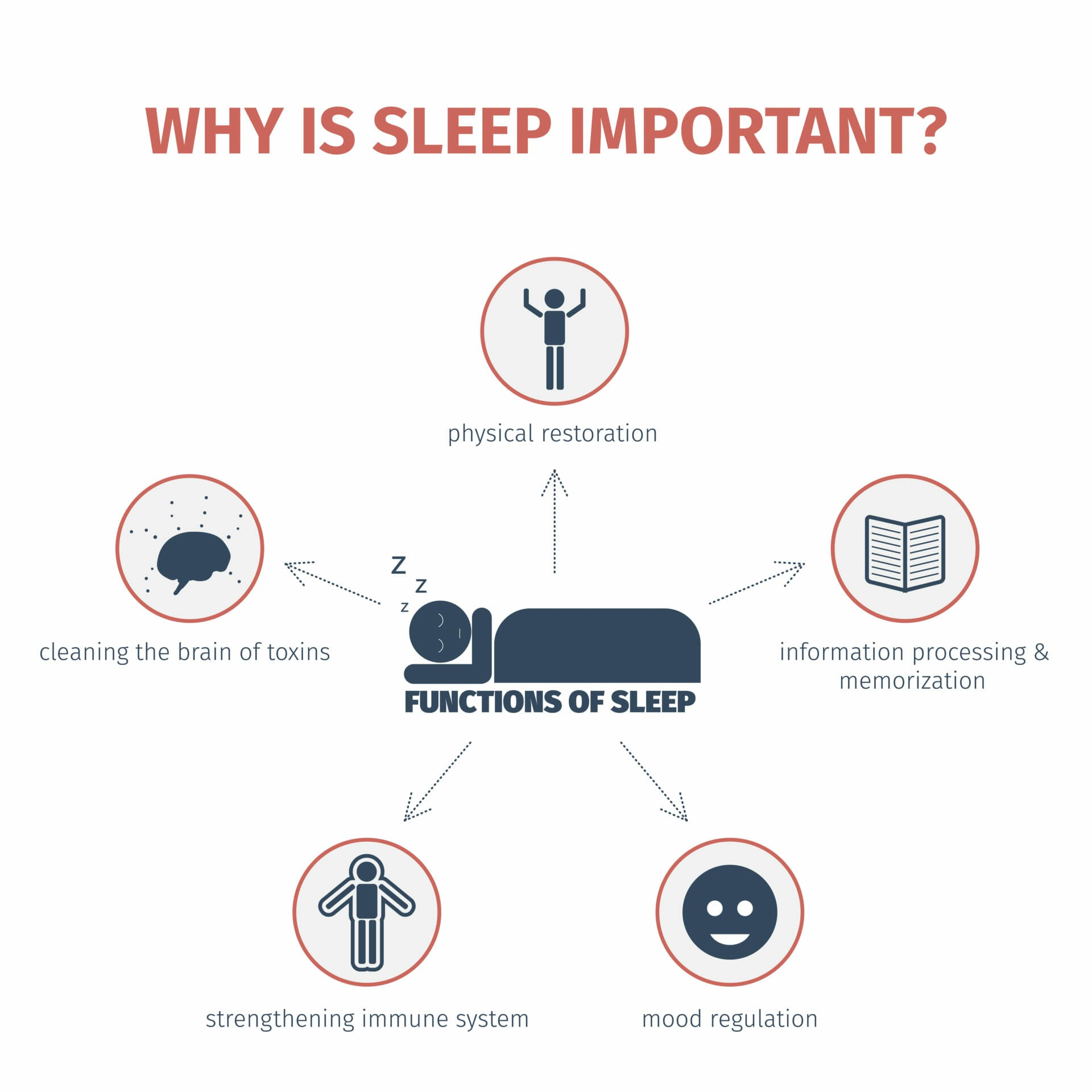
When I was young, my parents always reminded me of the importance of sleep. I heard their advice, but I didn’t really “get it.”
The same was true for countless other things in my life, of course, including healthy eating, brushing my teeth, etc.
Then something happened and it “clicked” — I finally got it and understood what I had to do. As my wife can tell you, once I latch on to something, I go all in and disregard any potential cost or consequences.
In other words, the need to sleep well has turned into one of my core beliefs.
You don’t have to be as extreme as I am (and your spouse will probably thank you for not taking it to my level).
But if nothing else, really try to understand how proper sleep — or lack thereof — can influence your life.
If you’re trying to accomplish something — anything — in your personal or professional life, you’re much more likely to reach your goals if you’re at the top of your game.
Without proper sleep, you will perform below your potential.
That’s a fact.
So take small steps and try to be the best you can be every day. Don’t give up. Sleep is a skill that you have to learn and practice, much like any other skill in life.
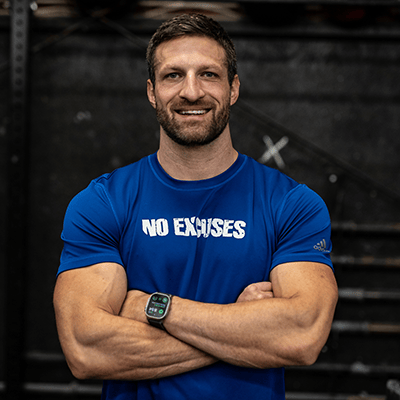
Michael Kummer is a healthy living enthusiast and CrossFit athlete whose goal is to help people achieve optimal health by bridging the gap between ancestral living and the demands of modern society.



Right on my man!
Thanks for the article, Michael. I’m curious what mattress you bought and what you have noticed in yourself by upgrading to it. My wife and I are sleeping on a good quality (for the time) 15+ year old mattress and I’ve been thinking about upgrading for a few months now.
Hi Matt!
We actually didn’t upgrade the mattress yet but added a mattress cover filled with down feather to make it softer. We have a pillow-top mattress with memory foam. Our upgrades were mostly around pillows and sheets and we really like the Westin bedding. For our next mattress we’ll probably go with a Simmons (they also make the Westin Heavenly Bed) or a Tempur-Pedic.
Cheers
Michael
Costco has a great foam mattress and topper.. you are suppose to change mattresses every 7 years..